Why Loneliness Feels So Real, Even When It’s Not | Kasley Killam
Challenging the loneliness stigma can change your life. Here’s how to start.
From a young age, many of us are taught that being alone means something is wrong, leading to negative thought patterns that reinforce feelings of isolation. Kasley Killam, author of The Art and Science of Connection and an expert in social health, explains how these perceptions of loneliness can shape our experiences and influence our lives.
According to Killam, this stigma around loneliness can trigger a stress response in the body, affecting both mental and physical well being. However, by challenging these narratives and reminding ourselves of how much control we really have, it’s possible to redirect our mindsets. It also helps, she says, to understand the difference between individualistic and collectivist cultures, and how each one can influence the way we interpret and discuss our feelings with others.
For those who have struggled with loneliness or felt trapped in a cycle of negative thinking, this perspective can help us break free. By shifting our thought patterns, we can transform our relationships, enhance our sense of connection, and improve our overall well-being.
About Kasley Killam:
Kasley Killam is a social health expert, author, and advocate focused on strengthening connections and enhancing community well-being. With a background in behavioral science and public health from Harvard University, she is a leading voice on the impact of social relationships on mental and physical health.
As the founder of Social Health Labs, Killam collaborates with organizations to develop innovative solutions for combating loneliness and social isolation. Her work has been featured in major publications, and she is a sought-after speaker on the importance of social well-being in creating healthier, more resilient communities.
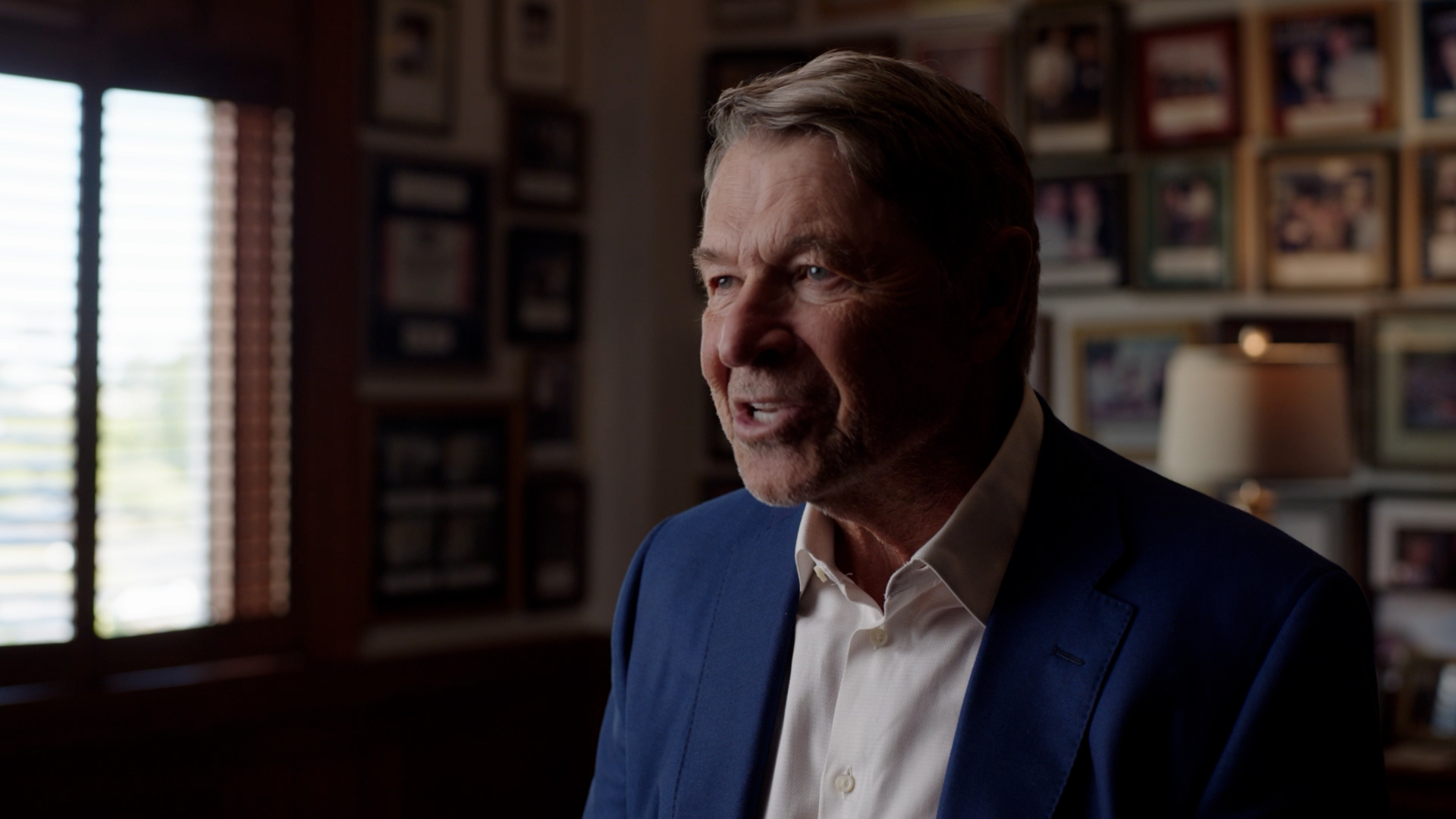
Yum! Brands co-founder David Novak reflects on a lifetime of movement, ambition, and leadership at the highest level. From a nomadic childhood to building some of the world’s most iconic restaurant brands, Novak shares how slowing down, listening more closely, and reexamining his assumptions ultimately reshaped his definition of success and meaning.

Good anxiety isn’t the enemy. Good anxiety is actually your built-in superpower for focus, creativity, and connection when you learn how to harness it. In this Spark Salon, renowned neuroscientist, author, and NYU Dean Dr. Wendy Suzuki invites us to rethink our entire relationship with stress by revealing the remarkable science behind this often misunderstood emotion. Rather than something to avoid, control, or suppress, anxiety becomes a source of energy and insight when we understand the deeper purpose of our brain’s stress responses.
Drawing from her book Good Anxiety: Harnessing the Power of the Most Misunderstood Emotion, Dr. Suzuki shows us how to turn everyday stress into fuel for a stronger, more resilient, beautifully adaptive brain. By learning simple, science-backed strategies to support our brain’s natural responses, we can shift from feeling overwhelmed to feeling equipped. Ultimately, she demonstrates that anxiety isn’t something we simply have to endure. Rather, it’s something we can learn from, shape, and use to live a fuller, more grounded, and more empowered life.
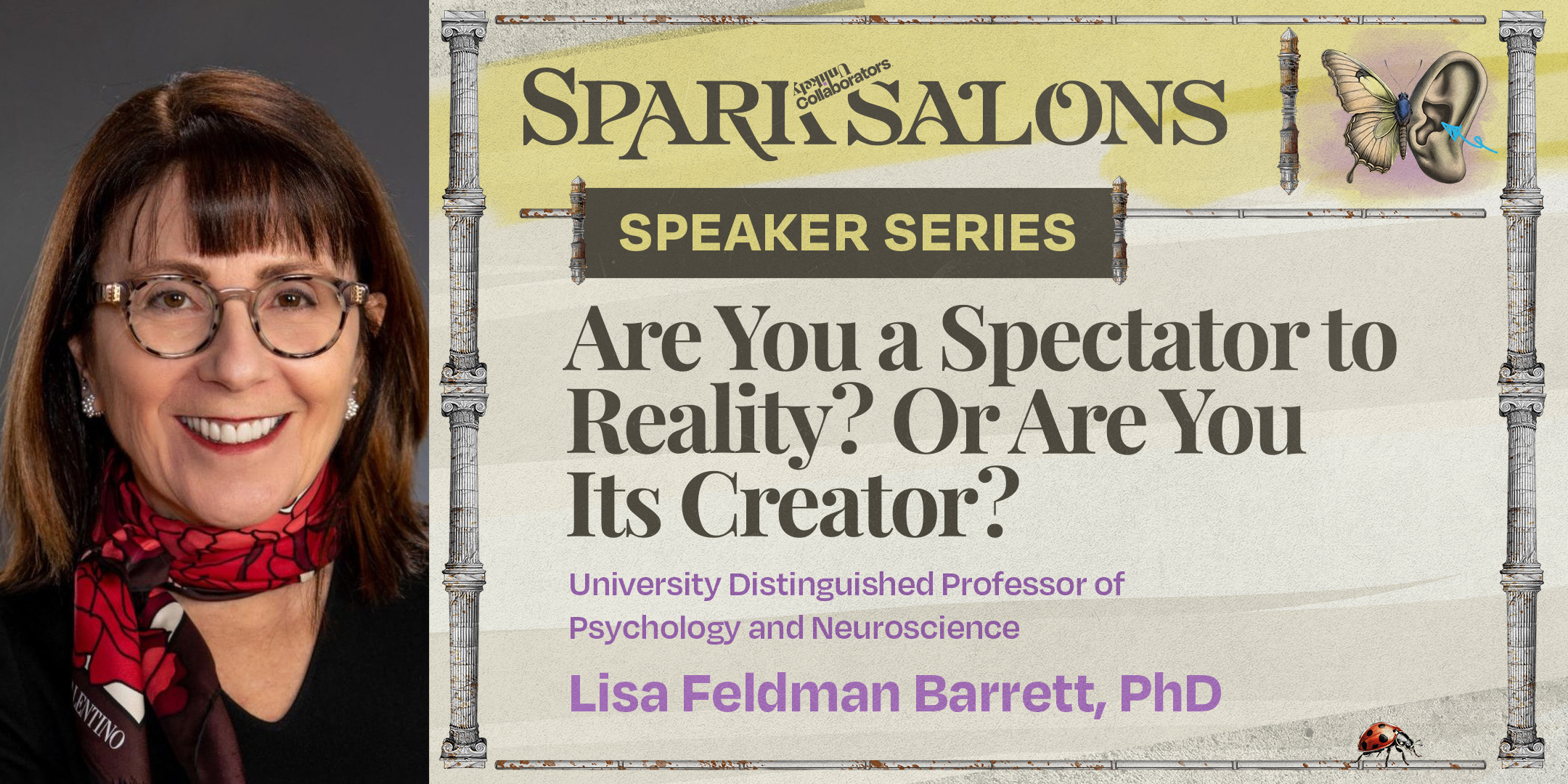
In this provocative Spark Salon, neuroscientist and best-selling author Lisa Feldman Barrett, PhD, invites us to rethink everything we believe about perception, emotion, and reality itself. Drawing on groundbreaking neuroscience, she reveals that we don’t perceive reality in a more or less objective way., Reality exists only in relation to us. Every sound, color, and feeling is an act of construction by the brain, shaped by culture, context, and memory. Through vivid examples, from a falling tree to a racing heart, Dr. Barrett shows that signals from the world and body have no inherent meaning until the brain processes them. What we experience as reality is a story our brains are constantly writing. Ultimately, she challenges us to recognize that we are not spectators of reality but its architects, with the power to expand our agency, reshape meaning, and reimagine what it means to be fully human.
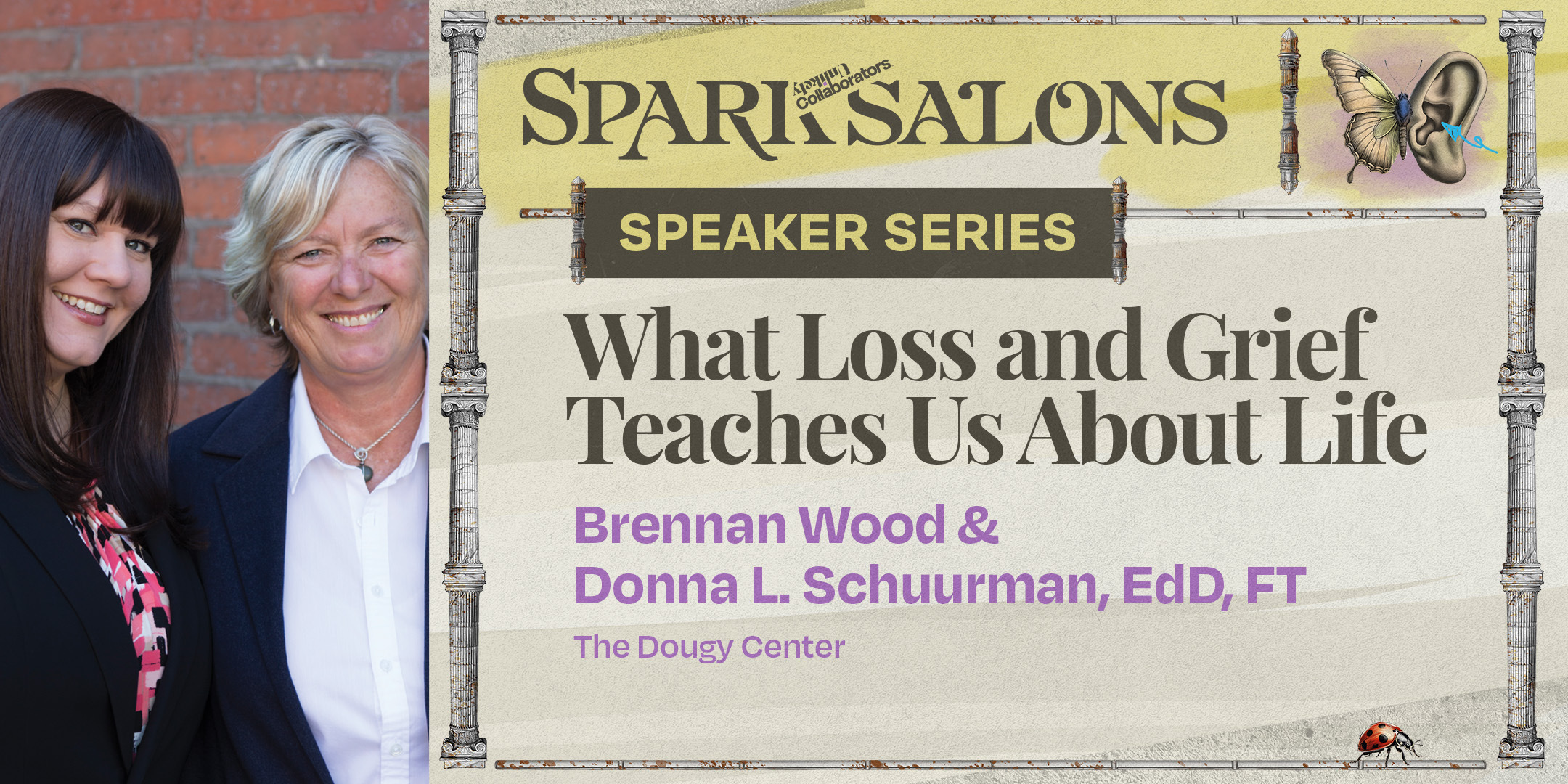
Grief transforms how we see the world, shaping identity, meaning, and connection in profound ways for all of us, especially for children and teens. In this Spark Salon, Brennan Wood, Executive Director of Dougy Center, and Dr. Donna Schuurman, Senior Director of Advocacy & Education and Executive Director Emeritus, invite us into the often-invisible narratives of kids who are grieving: how they make sense of loss, what they internalize, and the stories they carry forward. Together, they will explore the power of witnessing grief, in ourselves and others, without trying to fix it—how presence itself can be healing, and what it means to be truly “grief-informed.” Drawing from personal experience and decades of leadership in the field, Brennan and Donna will share practical reflections and hard-earned wisdom on how grief, when named and honored, can expand our understanding of resilience, empathy, and the human experience.
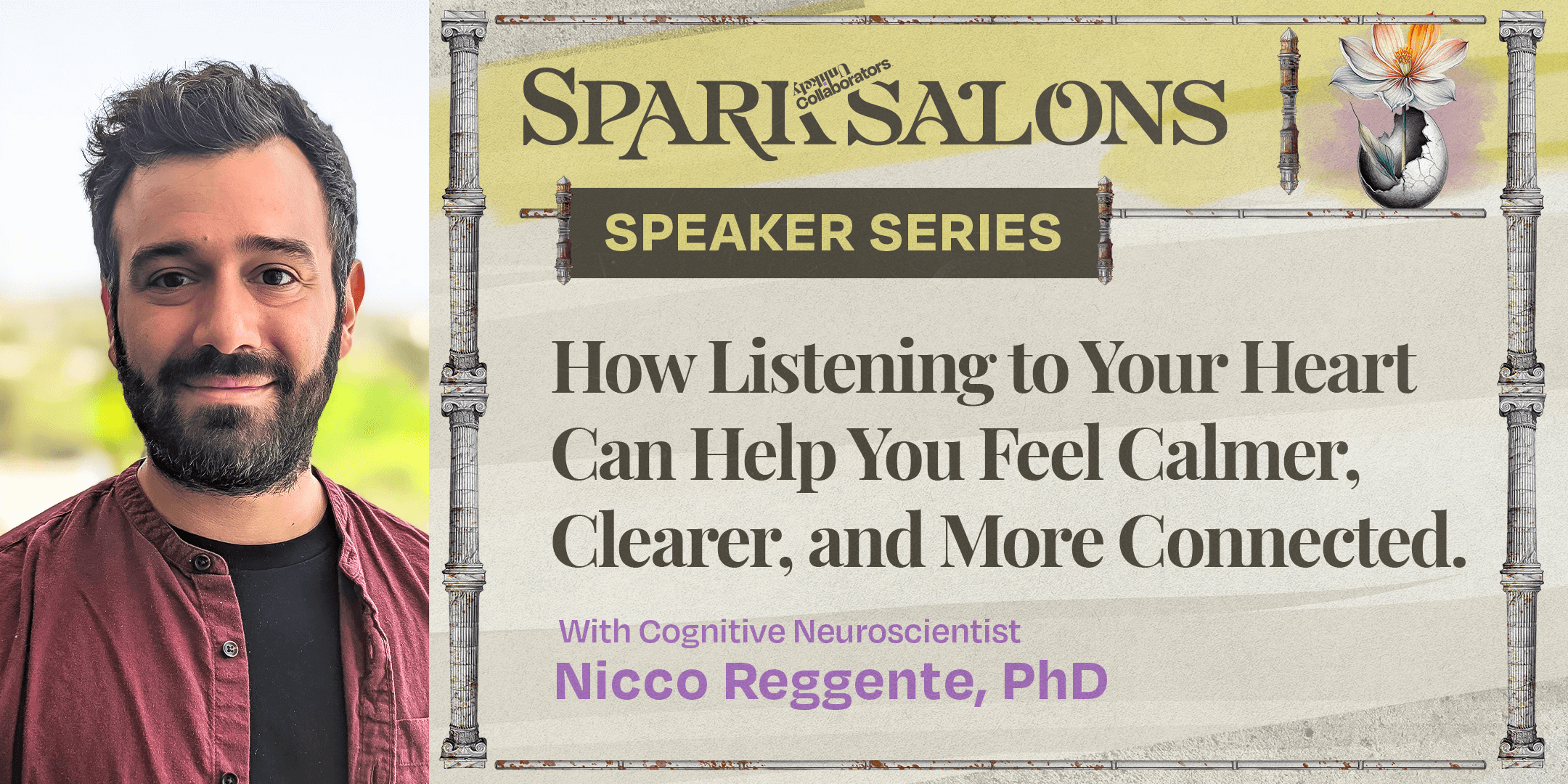
Neuroscientist and consciousness researcher Nicco Reggente, PhD, will explore the fascinating, science-backed connection between the heart and the brain in this mind-expanding Spark Salon. Drawing from the groundbreaking, soon-to-be-published study Heartbeat-Evoked Potentials as a Neural Marker of Meditative Depth, Nicco will unpack the ancient wisdom behind “listening to your heart” and what it actually means in modern neuroscience. You’ll discover how the body’s subtle signals, like your heartbeat, shape consciousness, mindfulness, and emotional regulation. Through the lens of interoception (our ability to sense internal bodily states), this session reveals how tuning in to the sensations of the body can help us respond more thoughtfully to life rather than react impulsively.
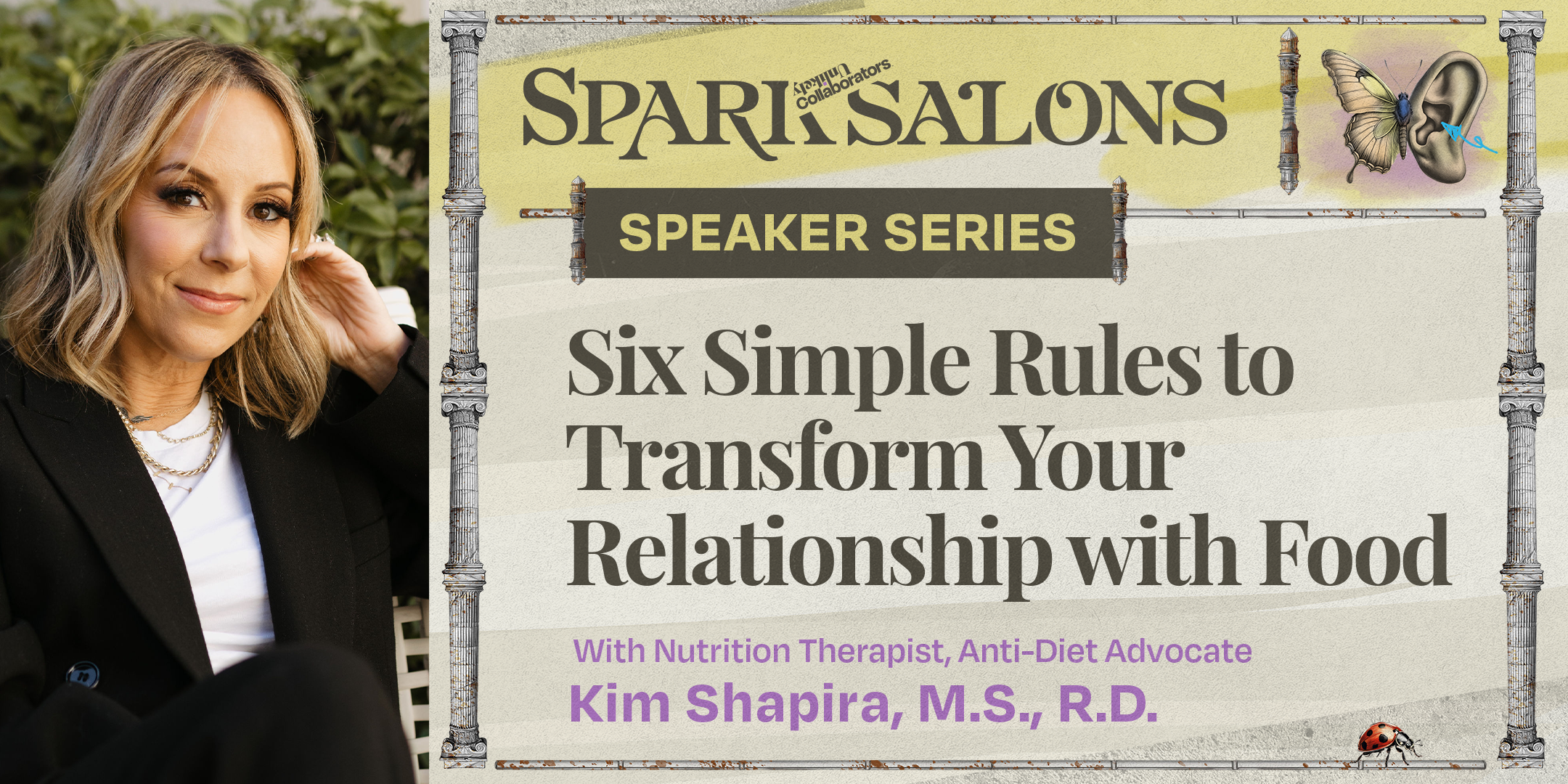
Nutrition therapist and author Kim Shapira, MS, RD, shares her transformative Six Simple Rules to Become Your Healthiest Self, based on her acclaimed book This Is What You're Really Hungry For. In this engaging session, Kim will introduce key principles from her Six Rules, guiding participants to reframe their relationship with food through science-backed strategies, self-awareness, and sustainable habits. Kim’s empowering and practical approach moves beyond restrictive diets, helping participants reconnect with their bodies, manage emotions in healthier ways, and build lasting behaviors that support physical and emotional well-being.
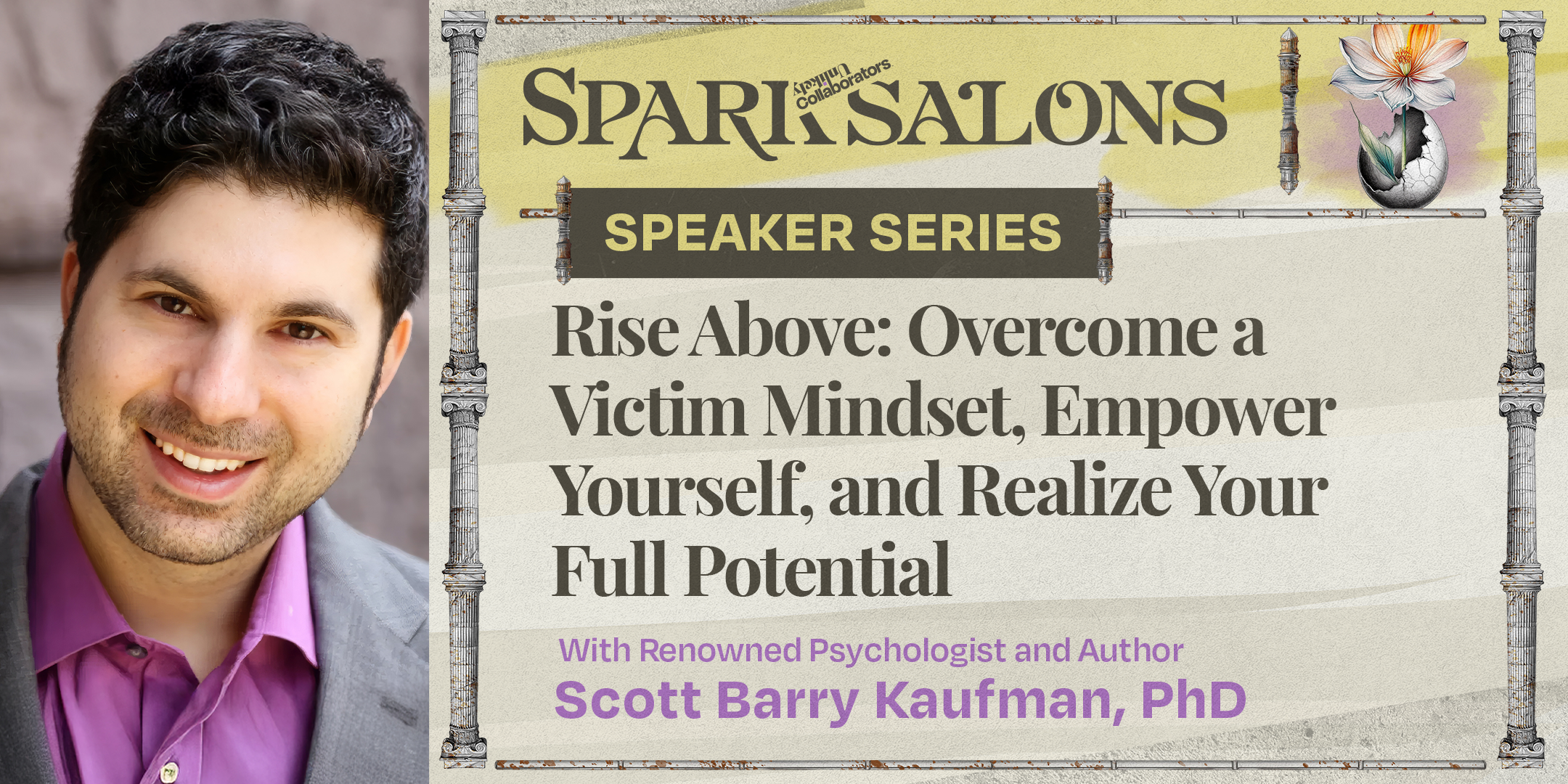
Join renowned psychologist and author Dr. Scott Barry Kaufman for a powerful Spark Salon exploring themes from his latest book, Rise Above: Overcome a Victim Mindset, Empower Yourself, and Realize Your Full Potential. In this engaging session, Dr. Kaufman challenges the limiting beliefs and cultural narratives that keep us feeling stuck, offering fresh insight into how we can move beyond a victim mindset to reclaim our agency and become the heroes of our own lives. Drawing on cutting-edge psychology and grounded in empathy and humor, he reveals how to harness emotional intelligence, reframe past experiences, and unlock the resilience and potential within each of us.
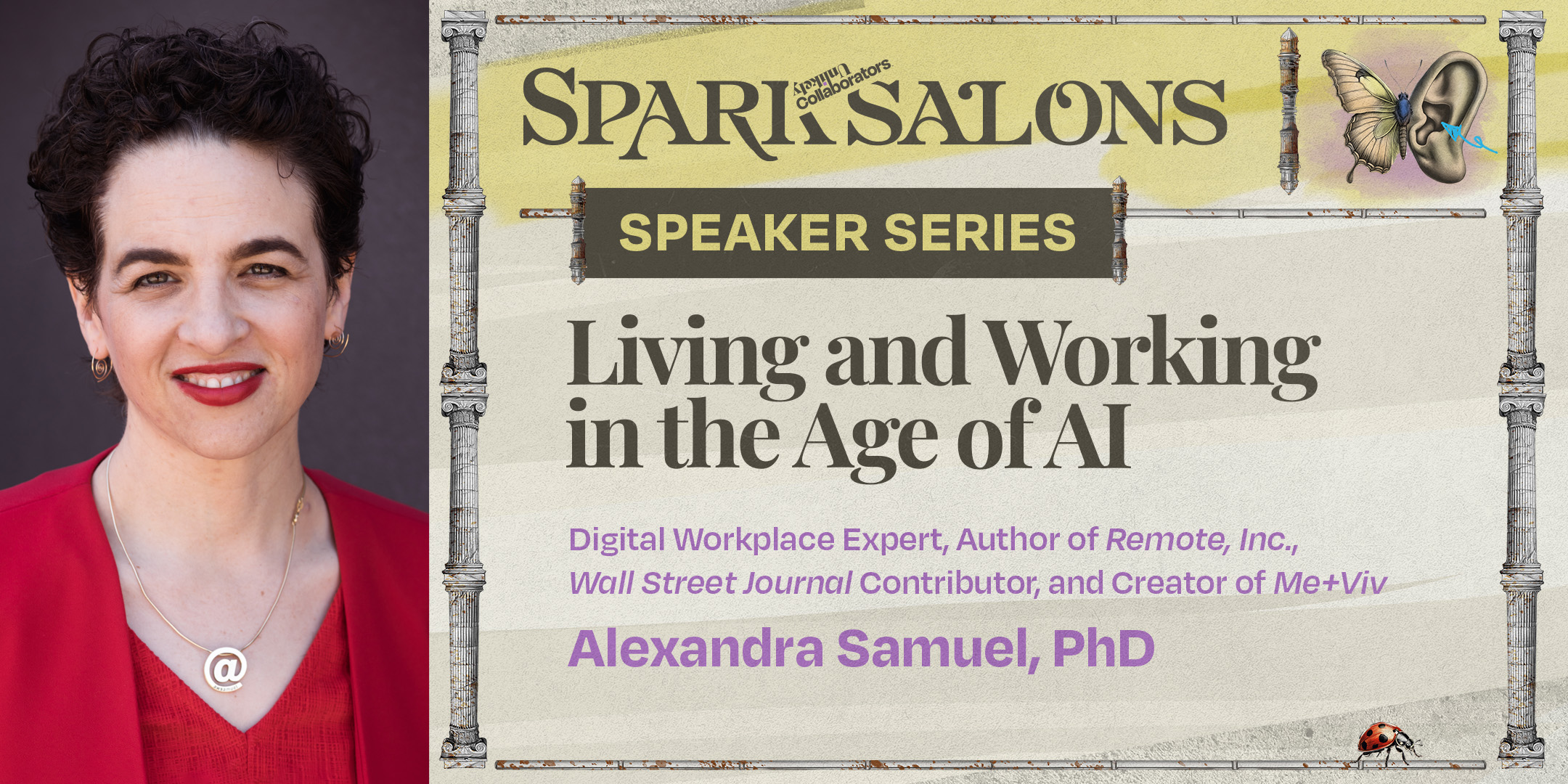
In this session, digital workplace expert and author Alexandra Samuel, PhD, explores how AI sycophancy is changing the stories we tell about ourselves and how those stories shape our work, relationships, and well-being. Drawing from her podcast, Me+Viv, and forthcoming book, she shares insights on the intersection of AI and the new workplace, including the hidden tools that can help surface new perspectives, challenge assumptions, and navigate the risks and possibilities of emerging technology.

In a world increasingly marked by isolation and division, artist and urban designer Candy Chang offers a powerful counterpoint: We can still design spaces—physical, emotional, and communal—that foster connection, reflection, and belonging. Best known for her global Before I Die project, Chang has transformed walls, museums, neighborhoods, and even casinos into places of shared vulnerability, creativity, and hope. In this deeply moving and visually rich session, she explores how art can help us process grief, spark dialogue, and bridge the spaces between us. Drawing on a career of participatory installations across more than 70 countries, Candy shows us how to leverage the power of creativity and community to design lives, and environments, where people feel seen, supported, and at home.
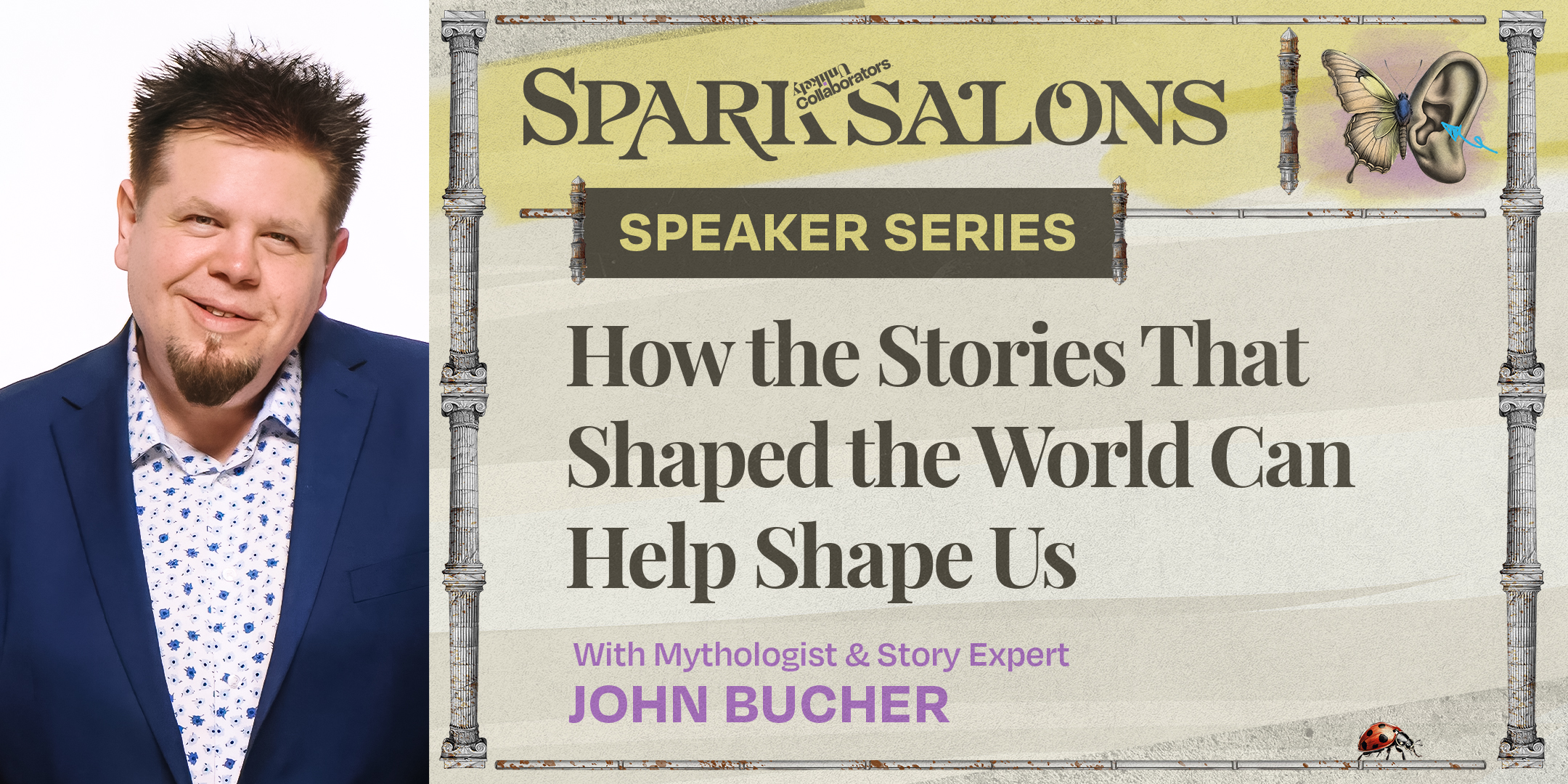
Renowned mythologist and story expert John Bucher explores the extraordinary power of story as a force for transformation. Drawing from ancient myths and modern movements, John will reveal how stories have historically reshaped cultural norms, shifted collective behavior, and expanded what people believed was possible. Through compelling examples, John will illuminate how stories can be tools for liberation or limitation, depending on how they shape our internal narrative frameworks. This session will inspire participants to examine the stories they live by and consider how re-authoring those narratives can lead to personal growth, deeper empathy, and even social change.
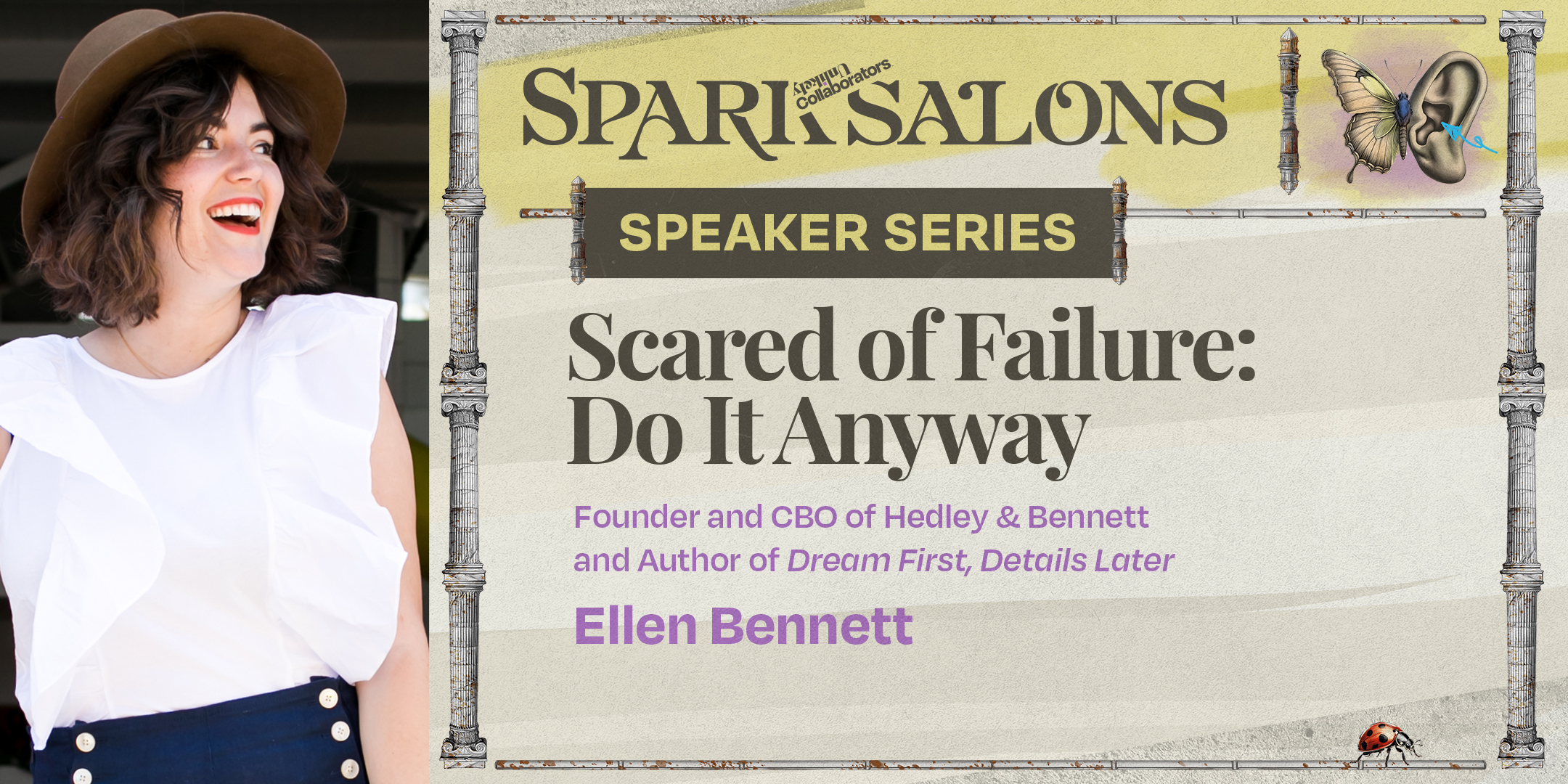
In this energizing session, Ellen Bennett, founder of Hedley & Bennett and author of Dream First, Details Later, shares the unfiltered truth about fear, failure, and forging your own path. With no safety net and no investors, Ellen built her company from scratch by embracing action over perfection, reframing setbacks as fuel, and turning limited resources into powerful assets. A bold, personal take on pushing through fear, self-doubt, and imposter syndrome, this talk is a powerful reminder that self-belief, persistence, and momentum matter more than credentials or ideal circumstances, and, importantly, that we each have the power to drive our own story forward.
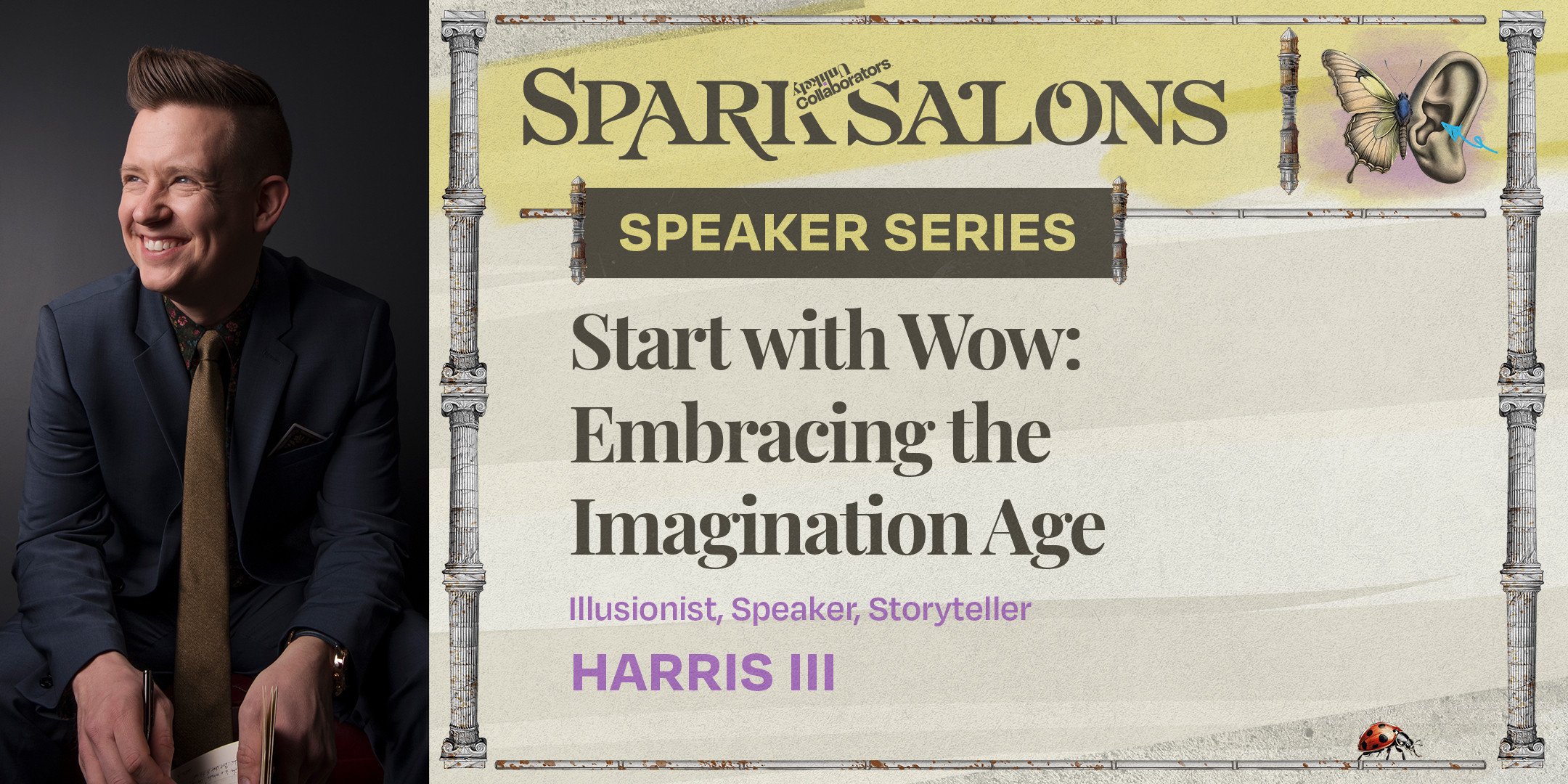
In this mind-expanding Spark Salon, storyteller, illusionist, and entrepreneur Harris III draws from his forthcoming book Start with Wow to explore a powerful shift: the transition from the Information Age to the Imagination Age. Blending magic, neuroscience, and storytelling, Harris makes the case that the future belongs not to those who begin with "how" or even "why" but to those bold enough to begin with "wow." As artificial intelligence and automation reshape the world, Harris offers a compelling framework for human relevance rooted in wonder, curiosity, and creativity. This session invites participants to reawaken their imaginations and see how awe—not algorithms—is the key to innovation, leadership, and purpose in the age ahead.

Sabrina's film is an animated conversation between her past, present, and future selves. The whole film was made using actual audio clips from her self when she was younger and the entire script was based around the limited dialog she could find on old home videos.
The film is meant to capture the vulnerable conversations that happen late at night and the thoughts that keep you up when you're anticipating something important the next day.
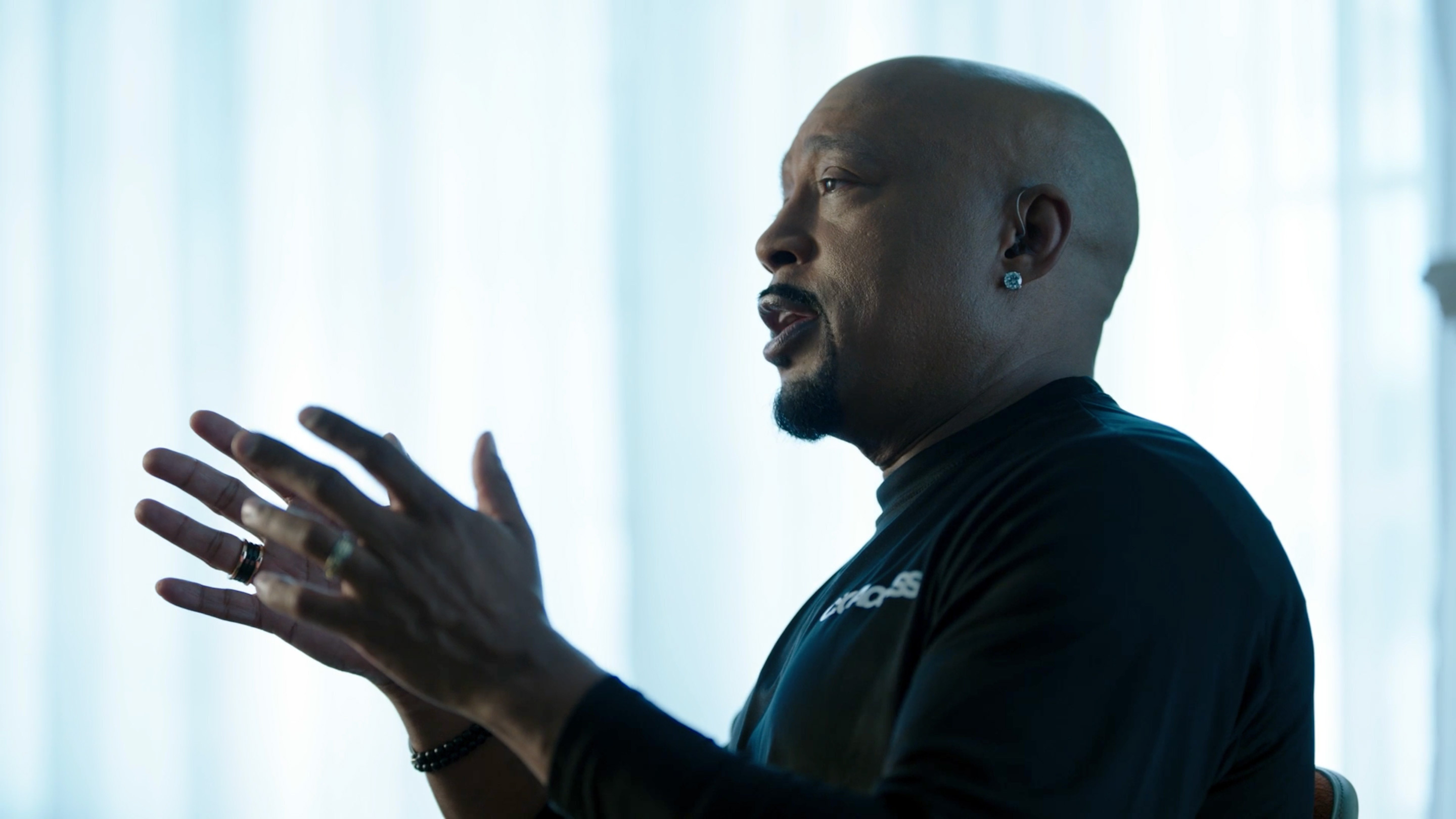
Entrepreneur and cultural icon Daymond John opens up about the experiences that shaped his hustle, worldview, and success. From the streets of Hollis, Queens to becoming one of Shark Tank’s most trusted investors, Daymond’s story is one of perseverance, reinvention, and purpose.
.jpg)
Why are bad habits so easy to form and so hard to break? In this four-part Spark Salon series, renowned psychiatrist, neuroscientist, and mindfulness expert Dr. Jud Brewer will reveal how our brains get hooked on unhelpful behaviors like anxiety, overeating, doomscrolling, and more—and how we can disrupt these patterns by better understanding the science of habit formation. Drawing from cutting-edge research, Buddhist psychology, and clinical breakthroughs, Dr. Jud introduces a practical, compassionate approach to breaking habits, not through willpower but through awareness, curiosity, and kindness. The first session, held both in person and live-streamed from Unlikely Collaborators, will introduce Dr. Jud’s framework and set the stage for the series. The following three online-only sessions will each dive deep into one of the "three gears" of habit change, providing immersive, experiential opportunities for participants to apply these methods in real time. With interactive breakout discussions and practical tools, this series invites you to expand the walls of your Perception Box™ and build a new relationship with your mind.
Jud Brewer, MD, PhD (“Dr. Jud”) is a New York Times best-selling author and leading authority on habit change and the science of self-mastery. With over 25 years of mindfulness training combined with scientific research, he serves as the Director of Research and Innovation at the Mindfulness Center and as a professor at Brown University. An internationally recognized psychiatrist specializing in mindfulness for addiction, Dr. Jud has developed innovative mindfulness programs—both in-person and app-based—for smoking cessation, emotional eating, and anxiety. He has investigated the neural mechanisms of mindfulness using standard and real-time fMRI and EEG neurofeedback. He has trained U.S. Olympic athletes, coaches, and foreign government ministers. His work has been featured on 60 Minutes and in TED (one of the most-viewed talks of 2016 with over 20 million views), The New York Times, Time, Forbes, BBC, NPR, Al Jazeera, Bloomberg Businessweek, and more. Dr. Jud founded MindSciences—now part of Sharecare Inc.—to bring his discoveries directly to consumers. He also cofounded Mindshift Recovery, a nonprofit aiding those suffering from addiction. He is the author of The Craving Mind (Yale University Press, 2017), the New York Times Best Seller Unwinding Anxiety (Avery/Penguin Random House, 2021), and The Hunger Habit (Avery/Penguin Random House, 2024). For more information, visit www.drjud.com.
Learn more about Spark Salons at salons.unlikelycollaborators.com.
.jpg)
For Vijay Gupta, music is not entertainment. It is a lifeline. He sees art as a way to process pain and grief, transforming them into something that heals and sustains. Described by The New Yorker as “a visionary violinist and a radical thinker in the classical music world,” Gupta creates spaces where people feel seen, connected, and whole. In his talks, he invites us to reconsider how we relate to struggle and shows how creative expression can shift the inner stories that shape our lives.
Described by The New Yorker as “a visionary violinist and a radical thinker in the classical music world,” Vijay Gupta is an internationally celebrated musician, speaker, and advocate who bridges the worlds of art, justice, and healing.
He is the founder and Artistic Director of Street Symphony, a Los Angeles–based nonprofit that has presented thousands of musical workshops and performances in shelters, county jails, state hospitals, and prisons—creating spaces of connection for people in reentry from homelessness, addiction, and incarceration. For Gupta, music is not entertainment—it’s a lifeline, a way to process pain, reclaim dignity, and transform grief into belonging.
A member of the first violin section of the Los Angeles Philharmonic for 12 years, Gupta has performed globally as a recitalist, soloist, and chamber musician and is a founding member of the Darshan Piano Trio and Tesserae Baroque. His recordings span repertoire from Bach to contemporary composers, and in 2024, he was elected to the American Academy of Arts and Sciences.
A dynamic communicator, Gupta has given three TED talks that have garnered millions of views. He has delivered keynote addresses for the American Medical Association, The Richmond Forum, The Aspen Institute, Hallmark, Accenture, the Mayo Clinic, the U.S. Psychiatric and Mental Health Congress, and the League of American Orchestras. In 2026, Grand Central Publishing will release his memoir, Restrung, exploring loss, resilience, and the power of music to transform the human spirit.
Learn more about Spark Salons at salons.unlikelycollaborators.com.
.jpg)
From pregame traditions to team-building exercises, rituals are intertwined in every facet of our lives. Harvard Business School professor Michael Norton, author of The Ritual Effect, shows that rituals play a role in our everyday lives: from building connections to helping us leave work behind at the end of the day. We can transform our unconscious habits into conscious productivity—and rise to challenges and opportunities like never before. Named one of WIRED’s 50 People Who Will Change the World, Michael demonstrates the power of rituals in our teams, our workplaces, our families, and even our marriages.
Michael Norton is a Harvard Business School professor whose work dives into the psychological effects of ritual. His groundbreaking research has proved the importance and flexibility of rituals in our everyday lives—they affect our feelings, thoughts, and even behaviors. Michael shows that rituals can bind us together as a community, which makes for stronger teams who coordinate and find meaning in their work, and explores the role that rituals play in our families, our friendships, and our marriages. Michael shows us the power of ritual in our personal lives and our workplaces. His groundbreaking book, The Ritual Effect, has been called “endlessly fascinating” (Dan Pink, Drive) and “an eye-opening window into why we swear by certain routines—and how we can build more enriching ones” (Adam Grant, Think Again).
Michael has also researched personal finance and spending—specifically, how to use money to get happier. Along with fellow professor Elizabeth Dunn, he’s the co-author of the book Happy Money: The Science of Happier Spending, which proved that we’re going about spending our money all wrong. With five practical principles on how to increase happiness by changing the philosophy behind spending, Happy Money is “a rare combination of informed science writing, rollicking good fun, and practical pointers for a more flourishing and compassionate life” (David G. Myers, The Pursuit of Happiness). His TEDx talk, which draws on this research, has been viewed over four million times.
Michael has appeared on National Public Radio, CBS, Fox, and MSNBC, cohosted Talking Green, a podcast on how people really interact with money, and written op-eds for The New York Times, Forbes, and The Wall Street Journal. His research has been featured in publications like Psychological Science, Journal of Consumer Research, and Journal of Marketing Research, has been covered by The Economist, The Financial Times, and The Washington Post, and has been parodied by The Onion.
Learn more about Spark Salons at salons.unlikelycollaborators.com.
.jpg)
Curious minds. Brave questions. Unexpected connections.
From myth to mindfulness to the science of awe, the Spark Salon speaker series brings together voices that will challenge, inspire, and expand your perspective.
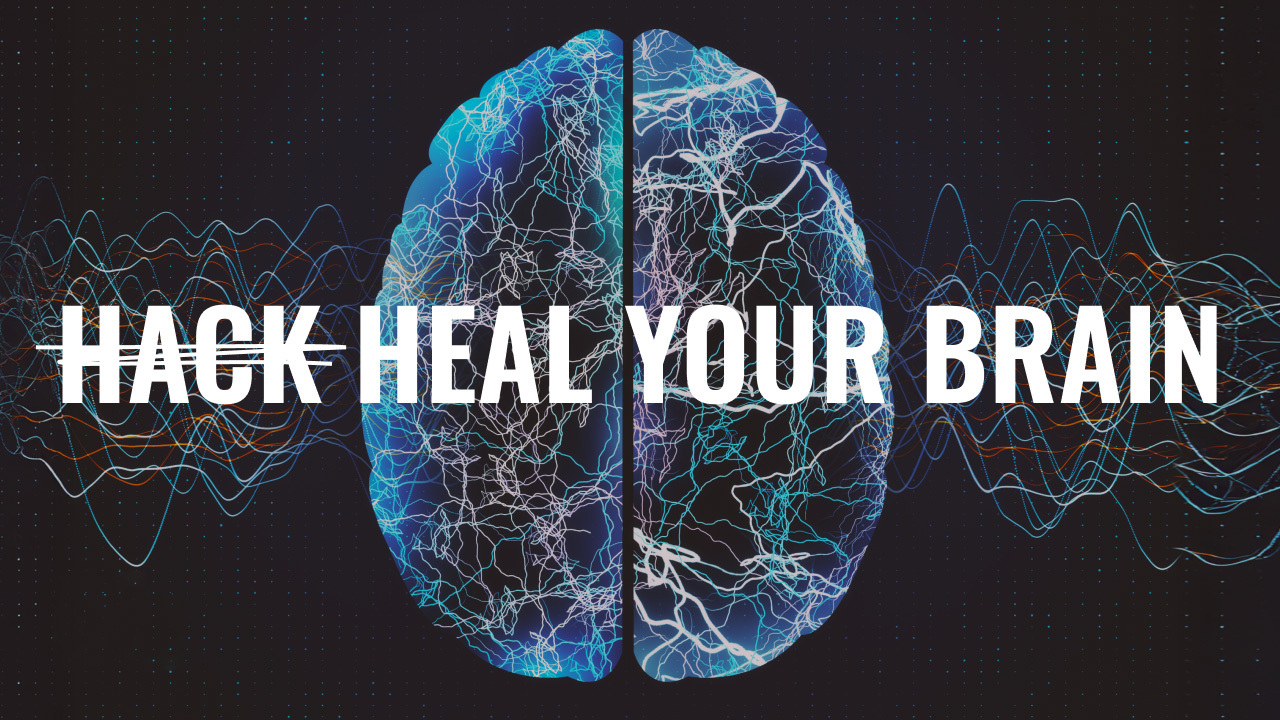
According to neuroscientists and psychiatrists, healing begins with awareness and compassionate connection.
Dr. Bessel van der Kolk, Dr. Wendy Suzuki, and Dr. James Doty explain how trauma and anxiety are processed through both the brain and body: trauma isn’t just what happens to us, but how our nervous system holds onto it, disrupting our ability to feel safe, connect with others, and think clearly.
Often a feeling people want to avoid, anxiety actually functions to motivate action and can be leveraged as a tool for focus and productivity. Through breathwork, mindfulness, and reshaping negative internal dialogue, we can begin to retrain the brain, regulate the body, and support a lifetime of growth.

Do Kids Think Rules Are Meant to Be Broken?
HiHo and Unlikely Collaborators teamed up to ask 100 kids just that—exploring how young minds view right, wrong, and everything in between.Inspired by the Perception Box framework.

What if the way you see the world is shaped by trauma you haven’t fully processed?
Psychiatrist Bessel van der Kolk, author of The Body Keeps the Score, explains how trauma isn't just remembered, it is physically lived and relived through the body and brain.
He describes how traditional talk therapy often fails to reach the survival centers of the brain where trauma resides. Instead, healing comes through visceral experiences that help rewire perception, build a sense of safety, and reconnect the self. Through movement, touch, psychodrama, and even psychedelics, the brain can learn to see the present as safe again.
About Bessel van der Kolk:
Bessel van der Kolk, M.D., is a pioneering psychiatrist and trauma researcher, best known for his work on post-traumatic stress disorder (PTSD). He authored the bestselling book The Body Keeps the Score, which explores how trauma reshapes both body and brain. As founder of the Trauma Research Foundation, he has led innovative treatments combining neuroscience, psychotherapy, and body-based approaches to healing trauma. His work has transformed trauma care worldwide.

“I want people to know that their lives matter and that their deaths ultimately will too.” How a journey to Cuba made Alua Arthur confront her own mortality, and ultimately led her to her career as a death doula.
Alua Arthur, a death doula, never expected to find her calling in the space between life and death. Struggling with depression and a sense of not belonging, she was searching for meaning when a chance encounter in Cuba changed everything.
After encountering death in her personal life, she began to confront her own mortality—and realize she wasn’t truly living. This moment, combined with the loss of her brother-in-law, set her on a path to becoming a death doula, someone who supports people through their final days. Now, she is an author, a (public speaker), and has dedicated her career to helping others embrace life by acknowledging its inevitable end.
About Alua Arthur:
Alua Arthur is a death doula, end-of-life care expert, and founder of Going with Grace, a nonprofit dedicated to helping individuals navigate the final chapter of their lives. After struggling with depression and identity, Alua found purpose in guiding others through the dying process with compassion and dignity. She has dedicated her life to empowering people to face death with grace, offering support to both individuals and their families.

Gracie Gold’s battle with mental health nearly ended her career—and her life. This is how she found her way back to herself.
Gracie Gold, a two-time national champion and Olympic medalist, seemed to embody perfection. But behind the medals and the headlines, her obsession with being flawless led her to a breaking point. After the 2016 World Championships, she spiraled into depression, binge-eating, and a complete loss of identity.
Feeling trapped and out of place, Gold hit rock bottom before seeking help at a treatment facility. There, she finally “met herself,” learning to let go of perfection and accepting “okay” as enough. Now, she’s a mental health advocate and a New York Times bestselling author.
About Gracie Gold:
Gracie Gold is an American figure skater known for her technical skill, artistry, and resilience. Born in 1995, she rose to prominence by winning the U.S. national title in 2014 and earning a bronze medal at the 2014 Winter Olympics in the team event. Gold also claimed silver at the 2016 World Championships, solidifying her status as one of the sport’s top competitors. After facing mental health challenges that led to a hiatus, she made a remarkable comeback, advocating for mental health awareness in athletics.

Can psychedelics under anesthesia heal trauma? What is the latest research around ketamine, MDMA, and psilocybin? That’s part of what we explore this week on Science of Perception Box. Stanford anesthesiologist Dr. Boris Heifets joins Dr. Heather Berlin and Dr. Christoph Koch to discuss the latest research on the first double-blind study on Ketamine, the placebo effect, and the therapeutic value of anesthesia-induced dreams.
Dr. Boris Heifets, MD, PhD, is a board certified anesthesiologist who specializes in providing anesthesia for neurological surgery. He has practiced at Stanford since 2010. After completing residency training at Stanford, Dr. Heifets completed fellowship training in neuroanesthesiology, also at Stanford. In addition to treating patients, Dr. Heifets directs both clinical research and basic neuroscience. His research group studies how new rapid-acting psychiatric therapies like ketamine, MDMA, and psilocybin produce lasting changes in nervous system function, behavior, and therapeutic outcomes.
Dr. Heather Berlin is a neuroscientist, clinical psychologist, and Professor of Psychiatry and Neuroscience at the Icahn School of Medicine at Mount Sinai in New York City.
Dr. Christof Koch is Chief Scientist for the Tiny Blue Dot Foundation and the current Meritorious Investigator and former President of the Allen Institute for Brain Science.
Join us for new episodes every Thursday. Follow the show on YouTube, Spotify, Apple Podcasts, Amazon Music, or wherever podcasts are found.
Love the show? Write us a review on your podcast app, or tell a friend about the show.

Ever wonder why time seems to fly or crawl? From ancient philosophers to modern neuroscientists, the nature of time has captivated human curiosity. This week on Science of Perception Box, we investigate the relationships among time, memory, and perception. Dr. Davachi shares the mechanisms of how the brain encodes and retrieves memories, including why emotions and feelings play a role in our perception of time.
Lila Davachi is a prominent neuroscientist known for her research in the field of memory. She earned her PhD from Yale University in 1999 and currently holds a faculty position at Columbia University, where she leads the Davachi Memory Lab. Her work primarily focuses on understanding the processes of memory encoding, consolidation, and retrieval through behavioral and cognitive neuroscientific methods.
Dr. Davachi has made significant contributions to the understanding of how memories are formed and maintained in the brain. She has published extensively in academic journals, with her research being highly cited within the scientific community. In addition to her research, she is actively involved in teaching and mentoring students in psychology and neuroscience.
Dr. Heather Berlin is a neuroscientist, clinical psychologist and Professor of Psychiatry and Neuroscience at the Icahn School of Medicine at Mount Sinai in New York City.
Dr. Christof Koch is Chief Scientist for the Tiny Blue Dot Foundation as well as the current Meritorious Investigator and Former President of the Allen Institute for Brain Science.
Join us for new episodes every Thursday. Follow the show on YouTube, Spotify, Apple Podcasts, Amazon Music or wherever podcasts are found.
Love the show? Write us a review on your podcast app or tell a friend about the show.

When was the last time you felt absolutely mesmerized by something beautiful? Whether it’s seeing a breathtaking vista, losing yourself in a piece of music, or being in a crowd cheering for the same team, the feeling of awe can be all-encompassing and expansive. This week on Science of Perception Box, Dr. Dacher Keltner, one of the world’s foremost emotion scientists and a scientific advisor behind Pixar’s Inside Out, shares how we can cultivate more awe in our life and why we need this sometimes overlooked emotion.
Dr. Keltner is a professor of psychology at UC Berkeley and the faculty director of the Greater Good Science Center. He has over 200 scientific publications and six books, including Born to Be Good, The Compassionate Instinct, and The Power Paradox. Dr. Keltner is involved with the education of health care providers and judges and has consulted extensively for Google, Apple, and Pinterest on issues related to emotion and well-being.
Dr. Heather Berlin is a neuroscientist, clinical psychologist and Professor of Psychiatry and Neuroscience at the Icahn School Of Medicine at Mount Sinai in New York City.
Dr. Christof Koch is Chief Scientist for The Tiny Blue Dot Foundation as well as the current Meritorious investigator and Former President of the Allen Institute For Brain Science.
Join us for new episodes every Wednesday. Follow the show on YouTube, Spotify, Apple Podcasts, Amazon Music or wherever podcasts are found.
Love the show? Write us a review on your podcast app or tell a friend about the show.

How can parents embrace science in order to give their children the best possible environment to thrive in? Cognitive development expert Dr. Alison Gopnik joins us to discuss how navigating challenges fosters healthier adults, likening caregiving to being a gardener creating an environment where various ”plants” can thrive in different conditions. Exposing children to diverse environments helps them develop better coping mechanisms, akin to how the immune system strengthens against viruses.
Dr. Gopnik is a professor at the University of California at Berkeley, where she has taught since 1988. She is a world leader in cognitive science, particularly the study of children’s learning and development. She is the author of over 100 journal articles and several books including the best-selling and critically acclaimed popular books The Scientist in the Crib, The Philosophical Baby, and The Gardener and the Carpenter. She is a fellow of the Cognitive Science Society and the American Association for the Advancement of Science and a member of the American Academy of Arts and Sciences.
Dr. Heather Berlin is a neuroscientist, clinical psychologist, and Professor of Psychiatry and Neuroscience at the Icahn School of Medicine at Mount Sinai in New York City.
Dr. Christof Koch is Chief Scientist for the Tiny Blue Dot Foundation and the current Meritorious Investigator and former President of the Allen Institute for Brain Science.
Join us for new episodes every Thursday. Follow the show on YouTube, Spotify, Apple Podcasts, Amazon Music, or wherever podcasts are found.

We long for love. We die for love. We kill for love. But why do we love? Cohosts Dr. Heather Berlin and Dr. Christoph Koch ask this question to Helen Fisher, PhD. who dedicated her career to researching romantic love. In this episode of Science of Perception Box, we explore how the act of being in love or out of love changes how we view ourselves and the world around us.
Dr. Fisher was a biological anthropologist, Senior Research Fellow at The Kinsey Institute, and Chief Science Advisor to Match.com. She used brain scanning (fMRI) to study the neural systems associated with the sex drive, romantic love, attachment, rejection, love addiction, long-term partnership happiness, and the biological foundations of human personality. She conducted extensive research on the evolution, biology, and psychology of human sexuality, monogamy, adultery, and divorce.
Dr. Heather Berlin is a neuroscientist, clinical psychologist, and Professor of Psychiatry and Neuroscience at the Icahn School of Medicine at Mount Sinai in New York City.
Dr. Christof Koch is Chief Scientist for the Tiny Blue Dot Foundation and the current Meritorious Investigator and former President of the Allen Institute for Brain Science.
Join us for new episodes every Thursday. Follow the show on YouTube, Spotify, Apple Podcasts, Amazon Music, or wherever podcasts are found.
Love the show? Write us a review on your podcast app, or tell a friend about the show.

What happens when an irredeemable person receives love, gratitude, and respect? After decades of drug and alcohol abuse, chef and television personality Andrew Zimmern learned firsthand.
As a teenager, Andrew Zimmern experienced deep pain when his mother became permanently disabled, and his father enforced a rule to avoid discussing feelings. Without an outlet, that pain grew into resentment and substance abuse. By 14, Zimmern was drinking daily, and his addiction followed him into adulthood, ultimately costing him his career, relationships, and home.
In January 1992, after hitting rock bottom, Zimmern attempted to take his own life. When he woke up, something shifted. For the first time, he asked for help. His friends intervened, sending him to rehab, where he began confronting his emotions and embracing a mindset of learning and giving.
Zimmern rebuilt his life, becoming a celebrated chef, author, and TV personality. Today, he credits that one vulnerable moment with saving his life and inspiring him to live with purpose and gratitude.
About Andrew Zimmern:
Andrew Zimmern is a chef, food writer, and television personality best known for hosting Bizarre Foods on the Travel Channel. A four-time James Beard Award winner, Zimmern has dedicated his career to exploring global cuisines and advocating for culinary diversity. Beyond television, he is a passionate philanthropist, focusing on hunger relief, food sustainability, and social justice. He founded the Andrew Zimmern Project to support food security initiatives and works with organizations like Second Harvest and Services for the Underserved. Through his work, Zimmern strives to create a more equitable food system and inspire cultural appreciation through cuisine.
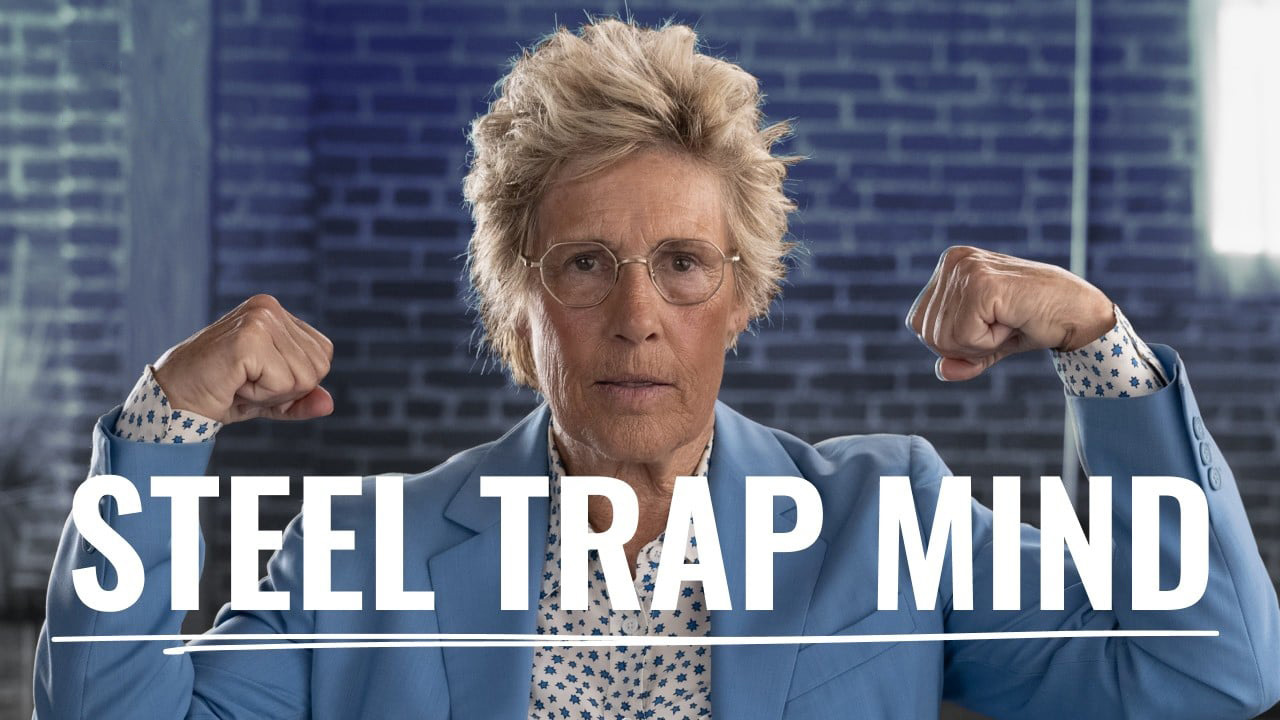
The one phrase that changed Diana Nyad’s life, and set her on course to become the first person ever to conquer the 110 mile, 53 hour swim from Florida to Cuba.
At 64, Diana Nyad swam 110 miles from Cuba to Florida, facing jellyfish, exhaustion, and tough ocean currents for over 53 hours. But this feat was more than just physical - it was the result of a lifetime of mental endurance.
As a young swimmer, she faced sexual abuse from her coach, which derailed her Olympic dreams and left deep emotional scars. Instead of letting those experiences hold her back, she found a way to channel that pain into something powerful. She talks about developing a "steel trap mind," using her struggles as motivation to pursue her goals.
Diana's journey goes beyond breaking records. It’s a powerful reminder of the human spirit's ability to persevere and heal, no matter the odds. Her swim from Cuba to Florida, completed on her fifth attempt, showcases her incredible willpower and serves as an inspiration to people everywhere.
About Diana Nyad: Diana Nyad is an endurance swimmer, author, and motivational speaker best known for her 2013 record-breaking swim from Cuba to Florida at age 64. Completing the 110-mile journey without a shark cage, she demonstrated unparalleled resilience and determination. Nyad is also a bestselling author, journalist, and co-founder of EverWalk, a fitness initiative promoting community through walking. Her story of perseverance, chronicled in her memoir Find a Way, continues to inspire audiences worldwide.
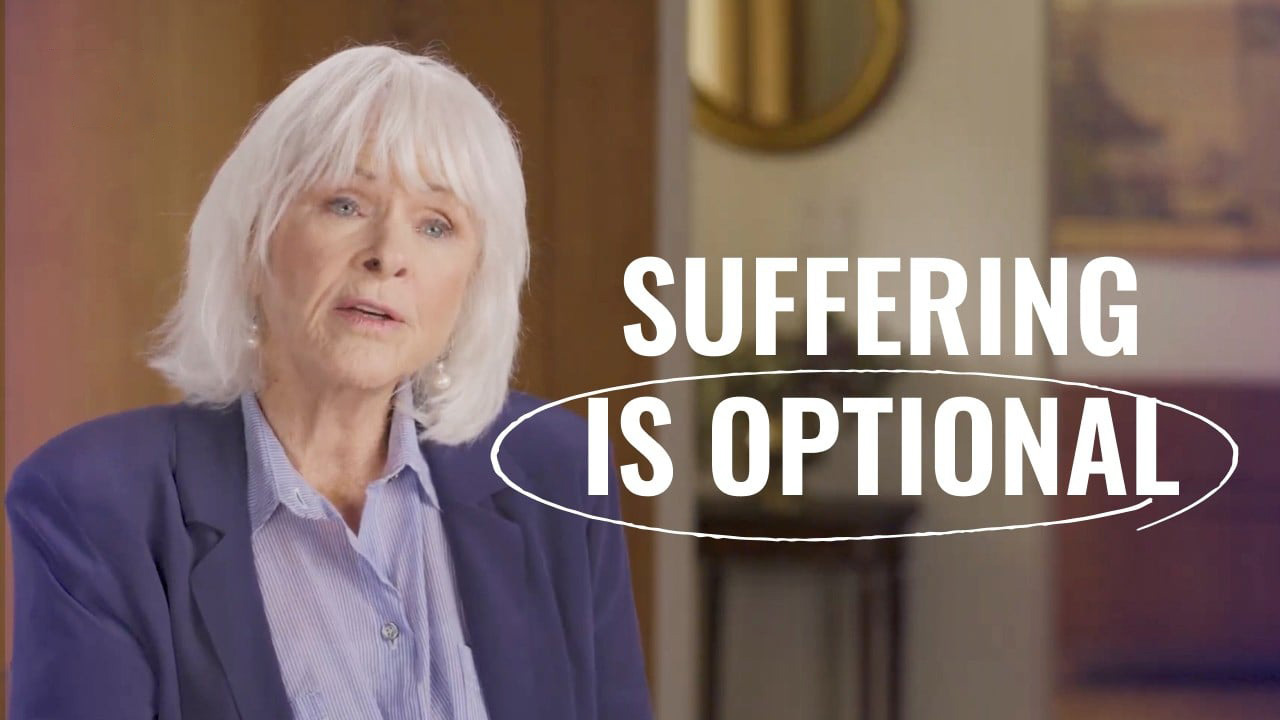
“I saw that when I believed my thoughts, I suffered, and when I didn’t believe them, I didn’t suffer.”
Author and public speaker Byron Katie shares how she transformed her life after discovering ‘The Work’, a method for identifying the thoughts that cause pain and suffering. By asking herself four simple yet profound questions, she found a way to recover from her agoraphobia, reunite with her family, and begin teaching others how to heal.
Katie’s strategy for ending suffering lies in asking yourself four questions about the thoughts you’re having: Is it true? Can you absolutely know it’s true? How do you react when you believe it? Who are you without the thought?
By asking yourself these questions, Katie explains how you can begin to escape the mentalities that hold you back. Her method shows us that peace doesn’t come from changing the world—it comes from changing how we see it.
About Byron Katie: Byron Katie is an author and teacher who helps people find peace by questioning their stressful thoughts. In 1986, after years of depression, she experienced a life-changing realization that led her to create The Work, a simple process of self-inquiry. Her books, like Loving What Is and A Thousand Names for Joy, have touched millions. Through workshops and talks, Katie shares a path to clarity and freedom, helping people live with more acceptance and ease.

Our cultural lenses can expand our Perception Box or contract it, keeping us closed off to new opportunities. So how do we become aware of the personal influences that shape our perceptions? In this episode of Science of Perception Box, cohosts Dr. Heather Berlin and Dr. Christoph Koch discuss the impact of cultural differences on identity and mindsets with guest Dr. Daphna Oyserman. Dr. Oyserman shares her insights on how small changes in context can significantly affect our mindset and choices, impacting our health and academic performance.
Dr. Daphna Oyserman is a Dean’s Professor of Psychology and Professor of Psychology and Education at the University of Southern California. Dr. Oyserman received a PhD in psychology and social work from the University of Michigan and served on the faculty of The Hebrew University, Jerusalem, before returning to the University of Michigan where she last held appointments as the Edwin J. Thomas Collegiate Professor of Social Work, Professor of Psychology, and Research Professor in the Institute for Social Research.
Dr. Heather Berlin is a neuroscientist, clinical psychologist, and Professor of Psychiatry and Neuroscience at the Icahn School of Medicine at Mount Sinai in New York City.
Dr. Christof Koch is Chief Scientist for the Tiny Blue Dot Foundation and the current Meritorious Investigator and former President of the Allen Institute for Brain Science.
Join us for new episodes every Thursday. Follow the show on YouTube, Spotify, Apple Podcasts, Amazon Music, or wherever podcasts are found.
Love the show? Write us a review on your podcast app, or tell a friend about the show.

What is the mind? Does the mind exist only in your own Perception Box, or is there a greater connection of consciousness? In this episode of Science of Perception Box, cohosts Dr. Heather Berlin and Dr. Christoph Koch discuss the interconnectedness of the mind, the impact of implicit memories from infancy on childhood attachment, and the wheel of awareness with Dr. Dan Siegel. Dr. Siegel shares his research and practices on healing unresolved trauma, preventing burnout for caregivers and medical professionals, and channeling the Perception Box-expanding power of empathy.
Dr. Siegel is the Executive Director of the Mindsight Institute and Founding Co-Director of the Mindful Awareness Research Center at UCLA, where he was also Co-Principal Investigator of the Center for Culture, Brain, and Development and Clinical Professor at the School of Medicine. An award-winning educator, he is a Distinguished Fellow of the American Psychiatric Association and recipient of several honorary fellowships. He has authored numerous articles and books, including five New York Times bestsellers.
Dr. Heather Berlin is a neuroscientist, clinical psychologist, and Professor of Psychiatry and Neuroscience at the Icahn School of Medicine at Mount Sinai in New York City.
Dr. Christof Koch is Chief Scientist for the Tiny Blue Dot Foundation and the current Meritorious Investigator and former President of the Allen Institute for Brain Science.
Join us for new episodes every Thursday. Follow the show on YouTube, Spotify, Apple Podcasts, Amazon Music, or wherever podcasts are found.
Love the show? Write us a review on your podcast app, or tell a friend about the show.
Visit unlikelycollaborators.com for more information.
.png)
Humans have a symbiotic relationship with plants. Plants coevolved to suit our desires for nourishment, beauty, and altering consciousness. Journalist Michael Pollan has investigated the human connection to plants. This week on Science of Perception Box, Dr. Heather Berlin and Dr. Christof Koch ask Pollan about modern trends like ultra-processed foods, industrialized agriculture, and consciousness-altering drugs from plants including caffeine, cannabis, and psychedelics.
For more than 30 years, Michael Pollan has been writing books and articles about the places where the human and natural worlds intersect: on our plates, in our farms and gardens, and in our minds. Pollan is the author of eight books, six of which have been New York Times bestsellers. In 2003, Pollan was appointed the John S. and James L. Knight Professor of Journalism at UC Berkeley’s Graduate School of Journalism and the director of the Knight Program in Science and Environmental Journalism. In 2020, along with Dacher Keltner and others, he cofounded the UC Berkeley Center for the Science of Psychedelics.
Dr. Heather Berlin is a neuroscientist, clinical psychologist, and Professor of Psychiatry and Neuroscience at the Icahn School of Medicine at Mount Sinai in New York City.
Dr. Christof Koch is Chief Scientist for the Tiny Blue Dot Foundation and the current Meritorious Investigator and former President of the Allen Institute for Brain Science.
Join us for new episodes every Thursday. Follow the show on YouTube, Spotify, Apple Podcasts, Amazon Music, or wherever podcasts are found.
Love the show? Write us a review on your podcast app, or tell a friend about the show.

Jim McKelvey, co-founder of Square, overcame a challenging upbringing marked by social isolation and family tragedy, channeling those experiences into a life defined by action, innovation, and iconoclasm. Though he’s undeniably earned his reputation as a business trailblazer, McKelvey remains uncomfortable with any attempts to mythologize his journey.

As a child, Bob Stiller felt unmoored. His mother’s death was a loss that fueled anger, insecurity and, as a teenager, lots of partying. He founded rolling paper company E-Z Wider in 1971 and, a decade later, Green Mountain Coffee Roasters.

Sophia Amoruso (aka Nasty Gal) started a tiny online vintage clothing store that quickly turned into a $350 million business. Fame soon followed, but so did all of her insecurities.

Anxiety can make us feel like we’re trapped in our brain. So how do we open the door and gain freedom? This week in the inaugural episode of Science of Perception Box podcast, Dr. Heather Berlin and Dr. Christof Koch invite Dr. Judson Brewer to delve into the roots of anxiety, its impact on our perception, and how curiosity can be the key to lasting change.
Dr. Judson Brewer studies the neural mechanisms of mindfulness. He is the Director of Research and Innovation at Brown University’s Mindfulness Center, where he’s also an Associate Professor at the School of Medicine. Dr. Brewer is a leading expert in the science of self-mastery and breaking habits. His books include Unwinding Anxiety, The Craving Mind, and The Hunger Habit.
Dr. Heather Berlin is a neuroscientist, clinical psychologist, and Professor of Psychiatry and Neuroscience at the Icahn School of Medicine at Mount Sinai in New York City.
Dr. Christof Koch is Chief Scientist for the Tiny Blue Dot Foundation and the current Meritorious Investigator and former President of the Allen Institute for Brain Science.
Join us for new episodes every Thursday. Follow the show on YouTube, Apple Podcasts, Spotify, Amazon Music, or wherever podcasts are found.
Love the show? Write us a review on your podcast app, or tell a friend about the show.

Join renowned scientists Dr. Heather Berlin and Dr. Christof Koch on the Science of Perception Box, where they delve into the Perception Box—a groundbreaking concept developed by Elizabeth R. Koch, that reveals how our beliefs, biases, and neural wiring shape our reality and define how we experience the world.
Through captivating conversations with expert guests like psychiatrist Dr. Judson Brewer, anthropologist Dr. Helen Fisher, and journalist Michael Pollan, the show explores how the Perception Box expands in states of awe, curiosity, and love, and contracts during fear, anxiety, or anger.
From mindfulness and romantic relationships to psychedelics and human connection, each episode uncovers transformative insights into unlocking greater awareness, fostering curiosity, and reshaping how we perceive the world.
New episodes drop every Thursday on YouTube, Spotify, Apple Podcasts, Amazon Music, or wherever you listen to podcasts. Follow the journey and redefine your reality.
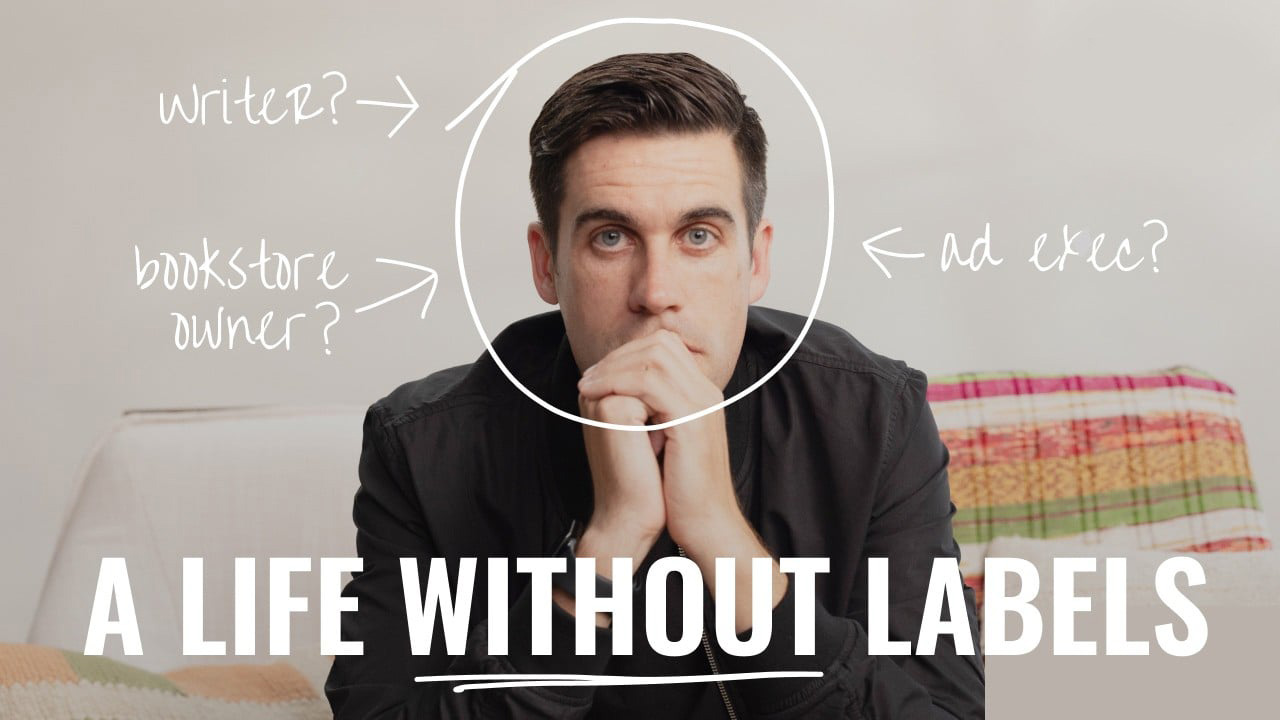
Don’t call yourself “a writer,” just write. Ryan Holiday on how the labels you give yourself can hold you back.
Who would you be without all the labels and identities you’ve collected over the course of your life?
Ego, titles, and societal expectations often shape who we think we are—or who we think we should be. Author, and for simplicity's sake, bookstore owner, Ryan Holiday explains the simple question “What do you do?” can turn into a trap, making us cling to roles that don’t really define us. But what happens when you let go of these labels? What if, instead of focusing on the identity of being a writer, you focused on the act of writing itself?
As Holiday got older, he learned that being busy “doing the verb” is far more valuable than obsessing over the noun. It’s easy to get caught up in trying to fit into the “right” categories and titles, but that often means copying, comparing, and losing sight of what really matters.
About Ryan Holiday: Ryan Holiday is a bestselling author, marketer, and one of today’s leading voices in modern Stoicism. He’s known for taking ancient wisdom and making it relatable and practical for everyday life. Before becoming an author, he led marketing at American Apparel. Now, he writes about strategy, self-discipline, and leadership, weaving history into real-world advice.

When a group of first responders were asked to confront the Perception Box question, "What need inside of yourself have you been neglecting?", their raw and honest responses were deeply moving and sparked profound reflection.
This series (a collaboration with Jubilee Media) is designed for communities with shared experiences to spark deeper self-understanding and connection by sharing their answers to specially selected Perception Box questions. This highlights the power of vulnerability and the importance of creating safe spaces for honest conversations.
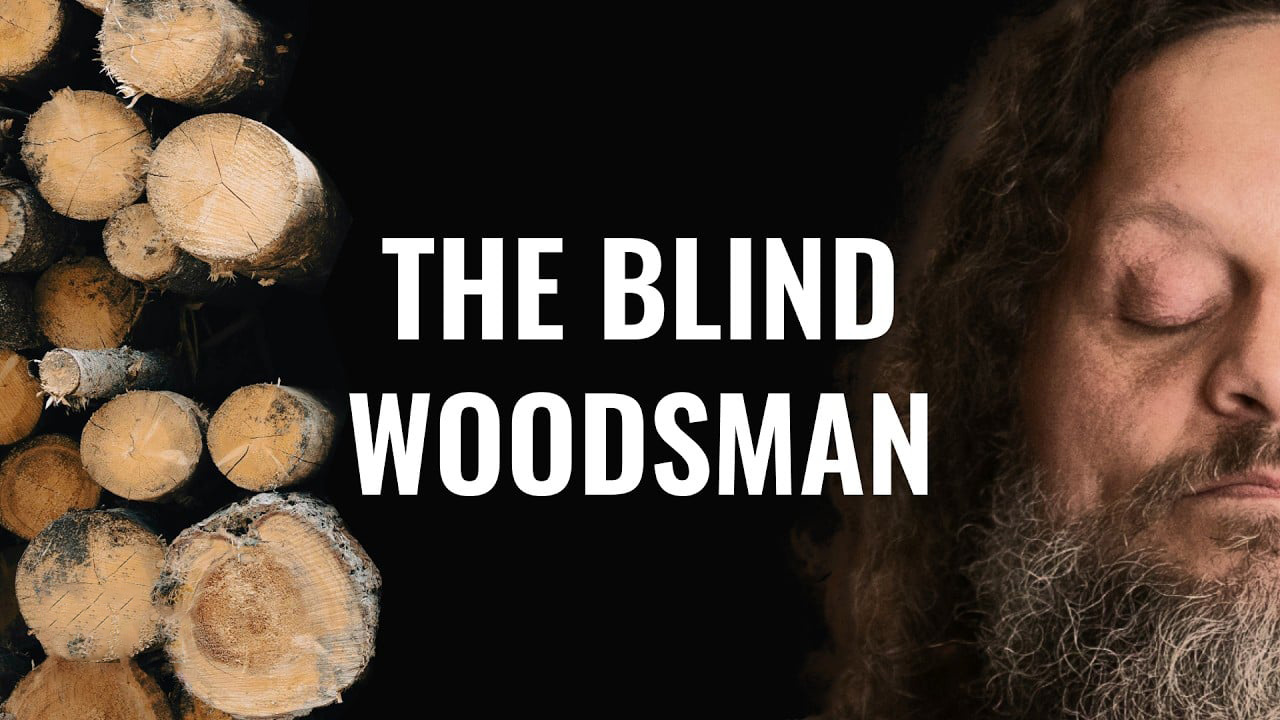
“I feel like I had to lose my sight to fully gain my vision.” John Furniss on how becoming blind led him to drug abuse, rehab, woodworking, and finally, to a fulfilling life.
John Furniss, also known as the Blind Woodsman, opens up about his journey from a difficult past to finding peace and purpose. After losing his sight as a teenager, John struggled for years to accept his new reality, battling inner turmoil and substance abuse along the way. It wasn't until he discovered woodworking through a vocational rehab program that he found a way to channel his creativity and start healing.
Woodworking became more than just a skill for John; it allowed him to bring the designs he imagined in his mind to life. This craft also led him to meet his wife, Annie, who has been a constant source of love and support. Through his work and his relationship, John found a sense of belonging and a new way of seeing the world. He reflects on how losing his sight actually helped him gain a clearer vision of who he is and what he’s meant to do, ultimately finding peace in embracing his true self.
About John Furniss:
John Furniss, known professionally as The Blind Woodsman, is a skilled woodworker, author, and disability advocate recognized for his meticulous hand-turned creations. After losing his sight at 16, John faced significant challenges adapting to life with total blindness. In his 20s, he found his passion for woodworking through a class designed for the blind, which led to the development of his unique craft.
Today, John’s work has been featured on platforms such as Good Morning America and The Kelly Clarkson Show. He and his wife, Anni, who is also an artist, use their social media platforms to share their work and raise awareness about disability and mental health. John’s expertise in woodworking and his contributions to the art community have established him as a respected figure in his field.
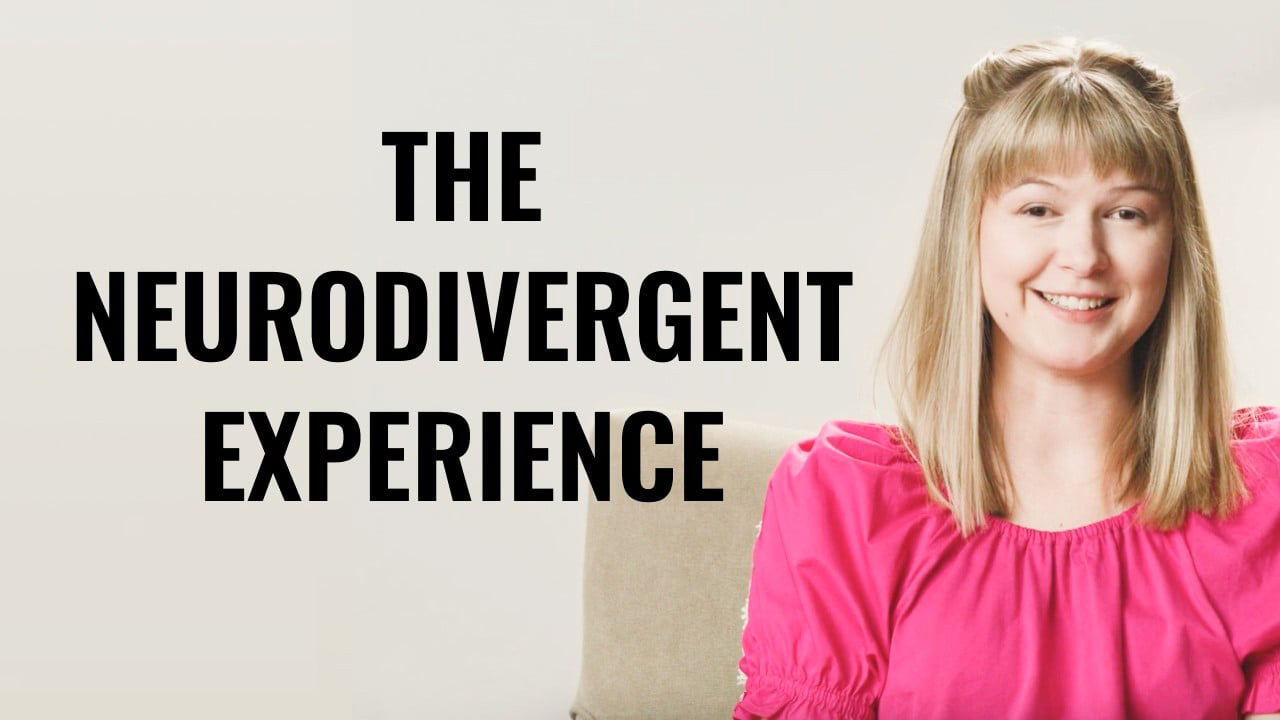
Kaelynn Partlow shares her story about life with autism, ADHD, and dyslexia, and how finding the right diagnosis helped her embrace her neurodivergent identity.
Kaelynn Partlow, an author, autism advocate, and registered behavior technician, shares her own experiences living with autism, ADHD, dyslexia, and more. She talks about how these diagnoses shifted her self-perception from feeling "stupid" to understanding her unique challenges and strengths.
Kaelynn opens up about the misunderstandings neurodivergent people face and the difficulty of connecting in a world that often doesn't accommodate different ways of thinking. She also shares her fears—like wondering if her social difficulties will ever improve—and how she copes with loneliness, especially when not focused on work.
Through it all, Kaelynn emphasizes the value of recognizing your own strengths, even when it’s hard. By taking on challenges and thriving under pressure, she found new opportunities, from public speaking to creative writing. Her story shows that growth often comes from facing fears and redefining success on your own terms.
About Kaelynn Partlow:
In 2015, Kaelynn Partlow joined Project Hope Foundation as a Registered Behavior Technician. She is now a Lead Technician, providing services to middle and high-school-aged clients and contributing to staff training development.
In 2021, Kaelynn was featured on the Netflix series Love On The Spectrum. She has also been a guest on numerous national podcasts and has published several articles, offering insights from an autistic perspective.
With a large following on various social media platforms, Kaelynn uses her reach for autism advocacy, connecting with millions globally. In addition to her online work and role at Project Hope, she is an international public speaker, passionate about sharing tangible strategies for best practices when interacting with individuals on the autism spectrum
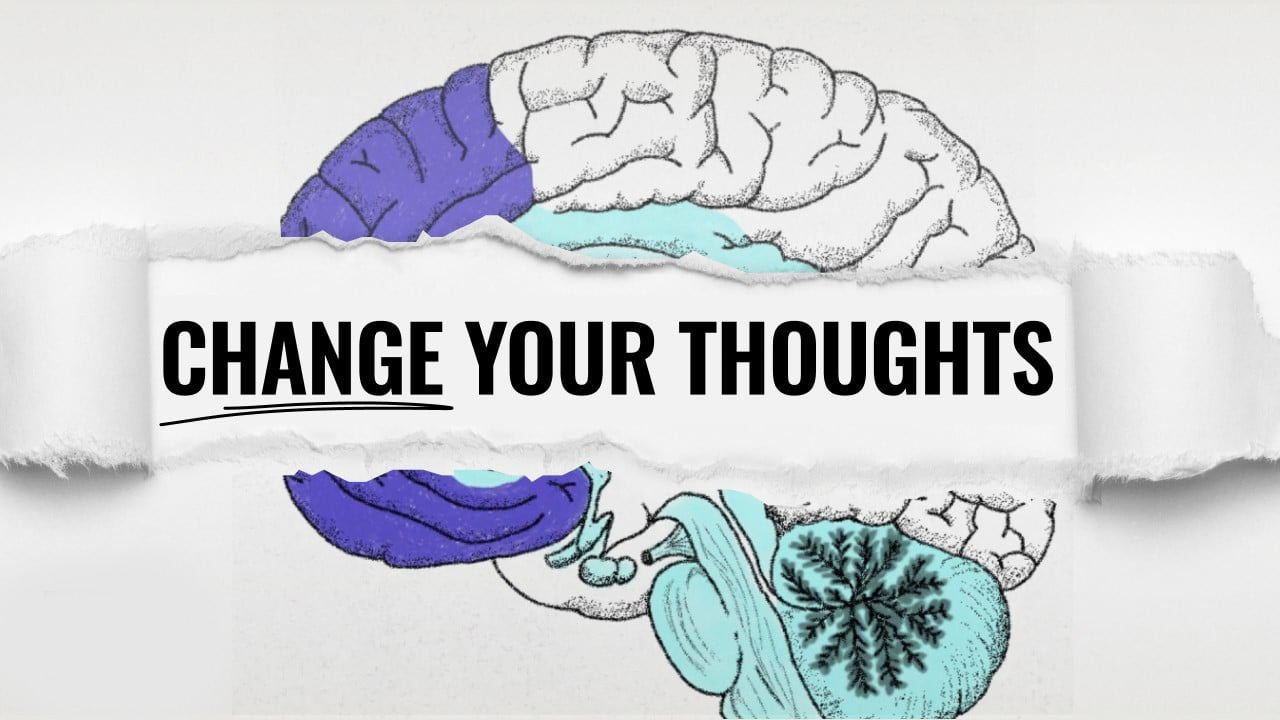
Your brain is wired to repeat the familiar. Change this wiring, and it will change your life.
Nicole Vignola, a neuroscientist and organizational psychologist, explains how deeply rooted beliefs can limit our potential and keep us trapped in patterns of thought. These perceptions, often shaped by our upbringing and environment, aren’t necessarily our own—but they can be changed.
Nicole shares how the brain’s natural biases, like negativity bias and confirmation bias, reinforce these limiting beliefs. However, with the right approach, it’s possible to reshape our mental patterns. By practicing metacognition—observing and naming our thoughts—we can start to rewire our perception and create new, empowering narratives.
Our brains are capable of change at any age. By focusing on small wins and challenging automatic thoughts, we can break free from old beliefs and begin using a mindset that better serves ourselves and our futures.
About Nicole Vignola:
Nicole Vignola is a neuroscientist, author and corporate consultant. With a BSc in Neuroscience and an MSc in Organizational Psychology, Nicole works with companies and individuals worldwide, educating them on the science of human optimisation, health and longevity, and how to enable employees to perform better in their daily lives and in turn, bring peak performance to the workplace. Recent clients include Lloyds Bank, Makers Mark and Smeg Ltd.
.jpg)
Expanding your worldview starts with understanding your brain. Stanford neuroscientist David Eagleman explains.
David Eagleman, a neuroscientist at Stanford and host of the Inner Cosmos podcast, explores how our brains shape the reality we experience and why we often accept our perceptions as the only truth. From a young age, we develop our understanding of the world based on limited experiences and biases, which can lead us to form narrow views about what's true.
Eagleman explains that our genetics and life experiences wire our brains in unique ways, meaning that each of us sees the world a little differently. He introduces the idea of "perceptual genomics," which looks at how slight genetic differences influence our perception of reality. He also discusses how our brains naturally create in-groups and out-groups, a tendency rooted in evolution that affects how much empathy we feel for others.
To overcome these biases, Eagleman suggests that we start by recognizing our own prejudices, understanding the tactics of dehumanization, and connecting with others through shared interests. This approach helps us appreciate the diverse realities others experience, ultimately contributing to a more empathetic and understanding society.
About David Eagleman:
David Eagleman is a neuroscientist at Stanford University and an internationally bestselling author. He is co-founder of two venture-backed companies, Neosensory and BrainCheck, and he also directs the Center for Science and Law, a national non-profit institute. He is best known for his work on sensory substitution, time perception, brain plasticity, synesthesia, and neurolaw.
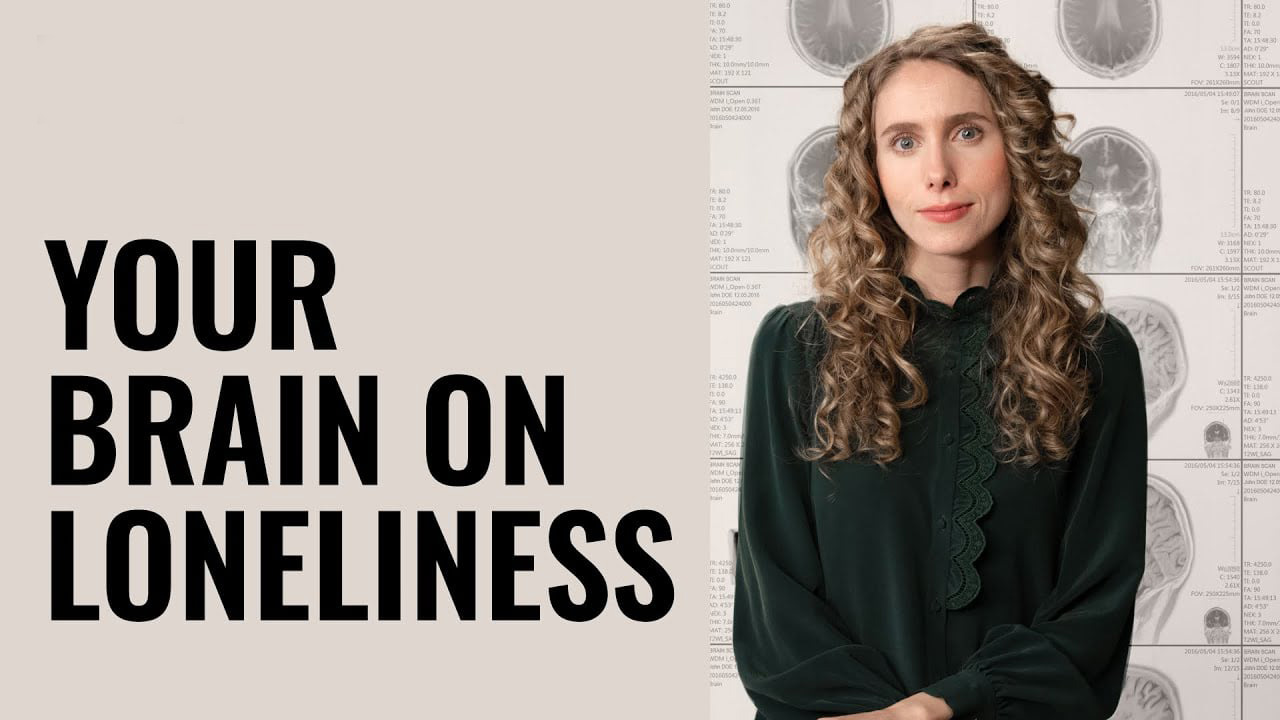
Challenging the loneliness stigma can change your life. Here’s how to start.
From a young age, many of us are taught that being alone means something is wrong, leading to negative thought patterns that reinforce feelings of isolation. Kasley Killam, author of The Art and Science of Connection and an expert in social health, explains how these perceptions of loneliness can shape our experiences and influence our lives.
According to Killam, this stigma around loneliness can trigger a stress response in the body, affecting both mental and physical well being. However, by challenging these narratives and reminding ourselves of how much control we really have, it’s possible to redirect our mindsets. It also helps, she says, to understand the difference between individualistic and collectivist cultures, and how each one can influence the way we interpret and discuss our feelings with others.
For those who have struggled with loneliness or felt trapped in a cycle of negative thinking, this perspective can help us break free. By shifting our thought patterns, we can transform our relationships, enhance our sense of connection, and improve our overall well-being.
About Kasley Killam:
Kasley Killam is a social health expert, author, and advocate focused on strengthening connections and enhancing community well-being. With a background in behavioral science and public health from Harvard University, she is a leading voice on the impact of social relationships on mental and physical health.
As the founder of Social Health Labs, Killam collaborates with organizations to develop innovative solutions for combating loneliness and social isolation. Her work has been featured in major publications, and she is a sought-after speaker on the importance of social well-being in creating healthier, more resilient communities.

Ever wonder why your partner goes Tasmanian Devil in traffic jams while you just shrug? Or why you have such a hard time setting boundaries with parents when your sibling has no problem saying "hell no!" Everyone has something that triggers panic or turns their blood cold…and it all starts with the story you made up about yourself when you were too young to know the difference…your Perception Box Seed Story.
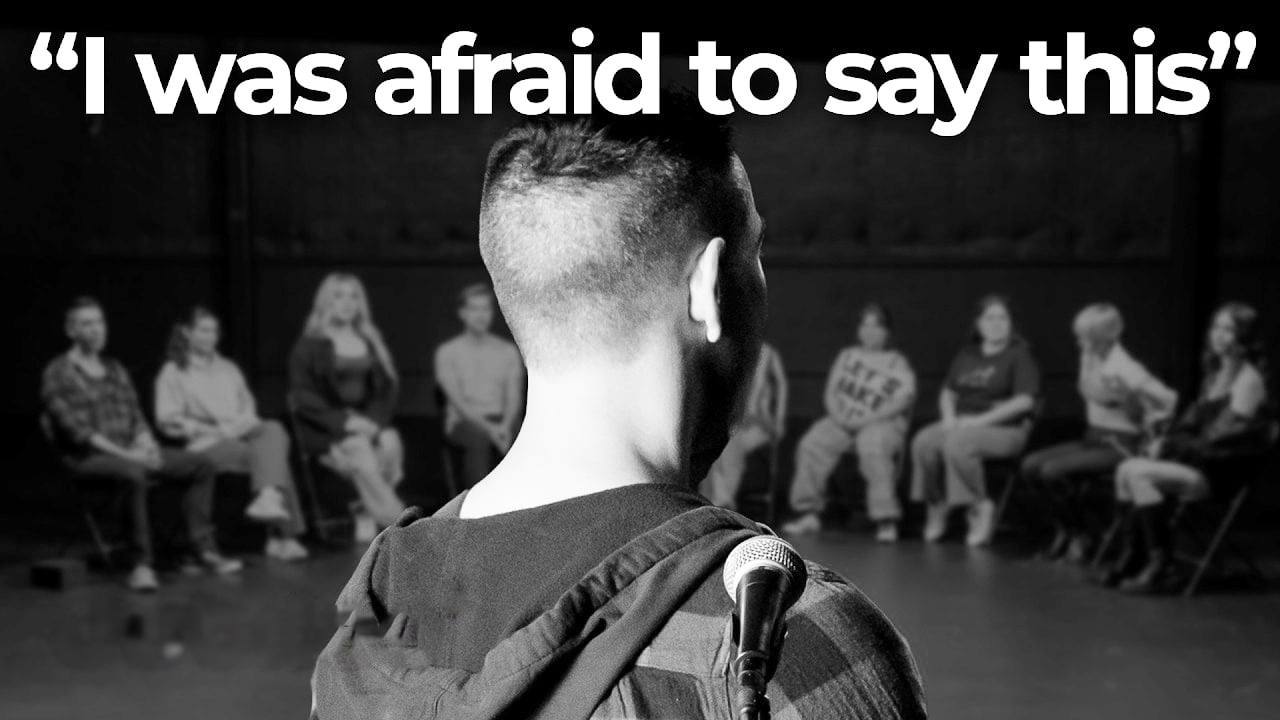
A group of LGBTQ+ individuals courageously answered the Perception Box question, "Who or what have you left behind on your journey to become who you are today?" Their honest and insightful responses were deeply moving.
This series (a collaboration with Jubilee Media) is designed for communities with shared experiences to spark deeper self-understanding and connection by sharing their answers to specially selected Perception Box questions. This highlights the power of vulnerability and the importance of creating safe spaces for honest conversations.
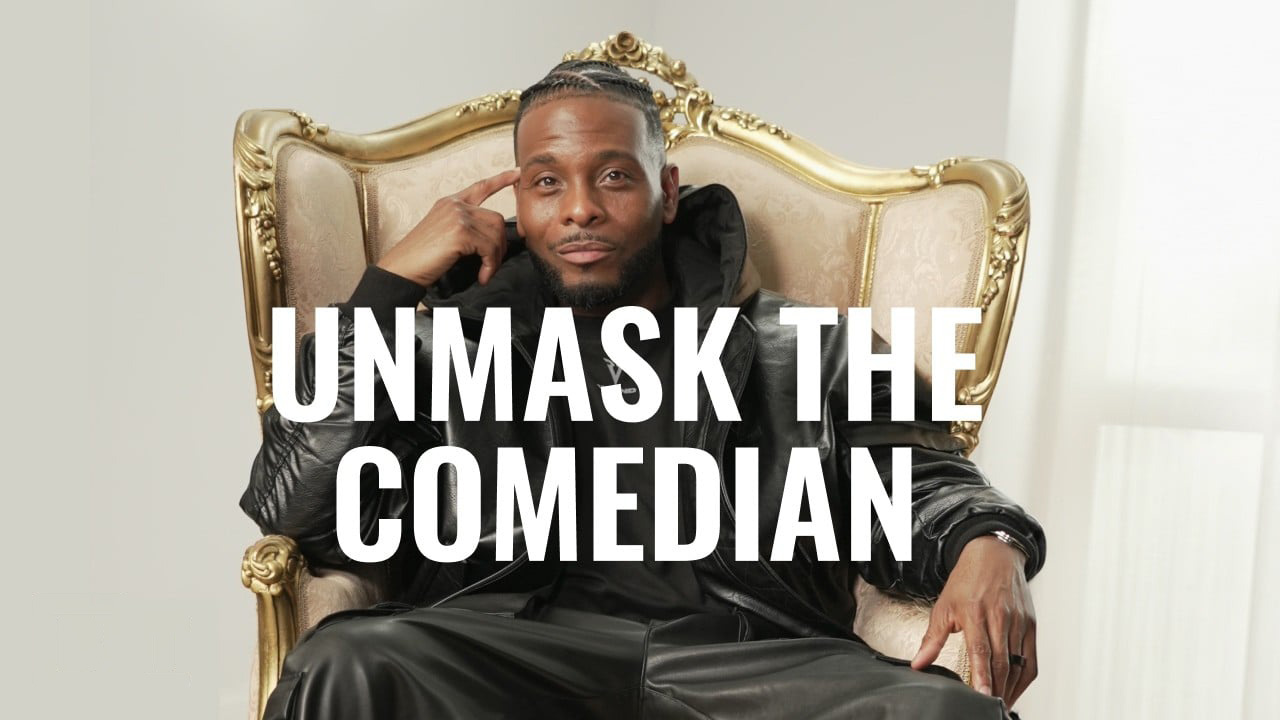
How has Kel Mitchell navigated self-doubt, isolation, and the desire to “hit the off button”? He says it’s all faith, community, and personal forgiveness.
After his debut on Nickelodeon, Kel Mitchell began a life-long career as an actor and comedian. He got married, started a family, and basked in professional success. However, behind the scenes, he faced intense personal hardships that pushed him to the brink, testing his resilience and strength in ways he never imagined.
Kel guides us through the lowest points of his life, showing us how faith in himself and his religion helped him rebuild and achieve a fulfilling existence. He reminds us that blessings can often be hidden in hardships and that mistakes play a crucial role in shaping who we are.
By expressing his pain and opening up to others about the things he was struggling with, he was able to find unity, community, and support from those who had experienced similar drawbacks. Mitchell stresses the importance of understanding others, and how deep relationships can change – and even save – lives.
If you or someone you know is considering suicide, please contact the National Suicide Prevention Lifeline at 1-800-273-TALK (8255), text “STRENGTH” to the Crisis Text Line at 741-741 or go to suicidepreventionlifeline.org.
------------------------------------------------------------------------
Kel Mitchell is a two-time Emmy Award-nominated actor, producer, comedian, and youth pastor hailing from Chicago, Illinois.
Mitchell executive produced and appeared in the new iteration of the beloved Nickelodeon series All That, bringing him full circle to the original award-winning show that was his big break. All That was Nickelodeon's longest-running live-action series, with 171 episodes across ten seasons from 1994 to 2005. The franchise paved the way for a number of successful spin-offs, including Kenan & Kel, The Amanda Show, The Nick Cannon Show, and the feature-length film Good Burger, all of which cemented Mitchell's impact on pop culture.

A two-part visualization to help you gain distance from any overpowering emotion so you can respond to the true need of the moment with something closer to calm.
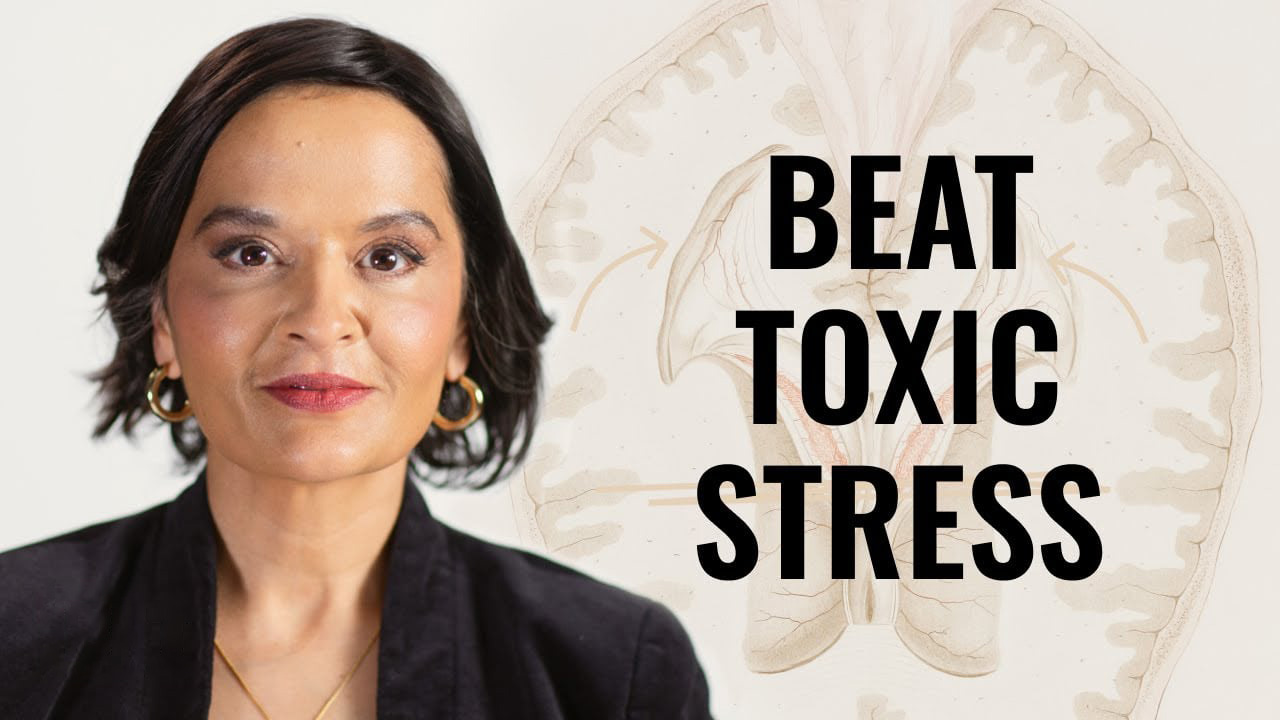
Harvard physician Aditi Nerukar explains how to rewire your brain’s stress response to live a more resilient life.
If you’ve ever heard the phrase “pressure makes diamonds,” this video is for you.
Harvard physician Aditi Nerurkar was working 80 hours a week, and, despite what she was telling herself about resilience, the stress was taking a major toll. She explains how there are two different kinds of stress, aptly named “adaptive” and “maladaptive.” But how can you tell the difference between the two?
Dr. Nerukar explains that healthy, adaptive stress moves your life forward, while unhealthy, maladaptive stress wears you down and diminishes your productivity. When experiencing maladaptive stress, you may find yourself plummeting closer to burnout, or a complete shutdown. To combat these consequences, Dr. Neurkar offers two easily achievable methods for resetting your brain in high-stress situations.
Whether you're navigating a demanding job, balancing multiple life roles, or simply looking to improve your stress management, this information can help you thrive without compromising your well-being. Remember to slow down, take deep breaths, and regularly check in with yourself to ensure your stress remains healthy and manageable!
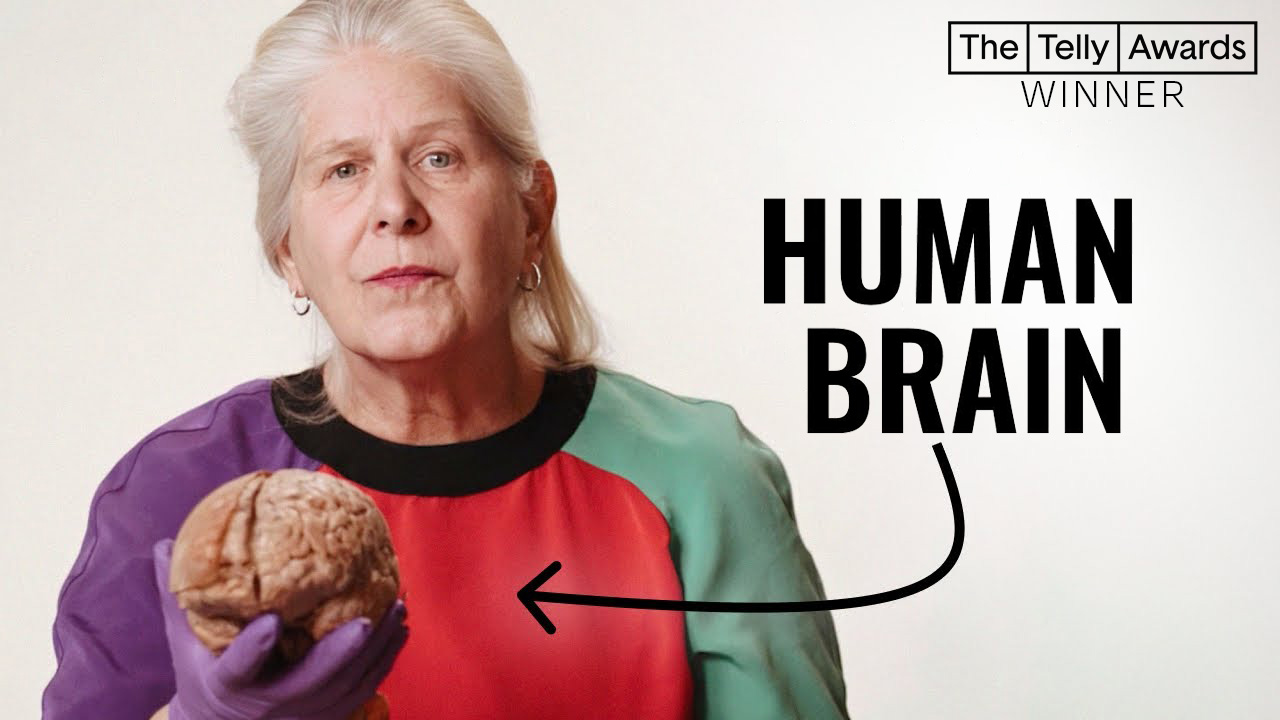
Neuroanatomist Dr. Jill Bolte Taylor explains the 4 key ”characters” of the brain, and how understanding each can expand your perception of yourself, and the world, forever.
At age 37, neuroanatomist Dr. Jill Bolte Taylor suffered a stroke that would take her eight years to fully recover from. This is how it changed her understanding of the brain.
In this interview, Dr. Jill draws a map of the human brain, explaining how it is comprised of four distinct modules, each serving a unique role in function and personality. This combination of cognitive and emotional components gives rise to the multidimensional characters within each of us.
Are you looking to be more rational, more creative, more forgiving, or perhaps less rigid in your thinking? Dr. Jill suggests that by becoming aware of the four modules of our brains, we can consciously choose to engage specific parts. This awareness allows us to harness the true power of our brains and shape who we want to become, ultimately fostering less anxiety, more inner peace, and a vastly more purposeful life.
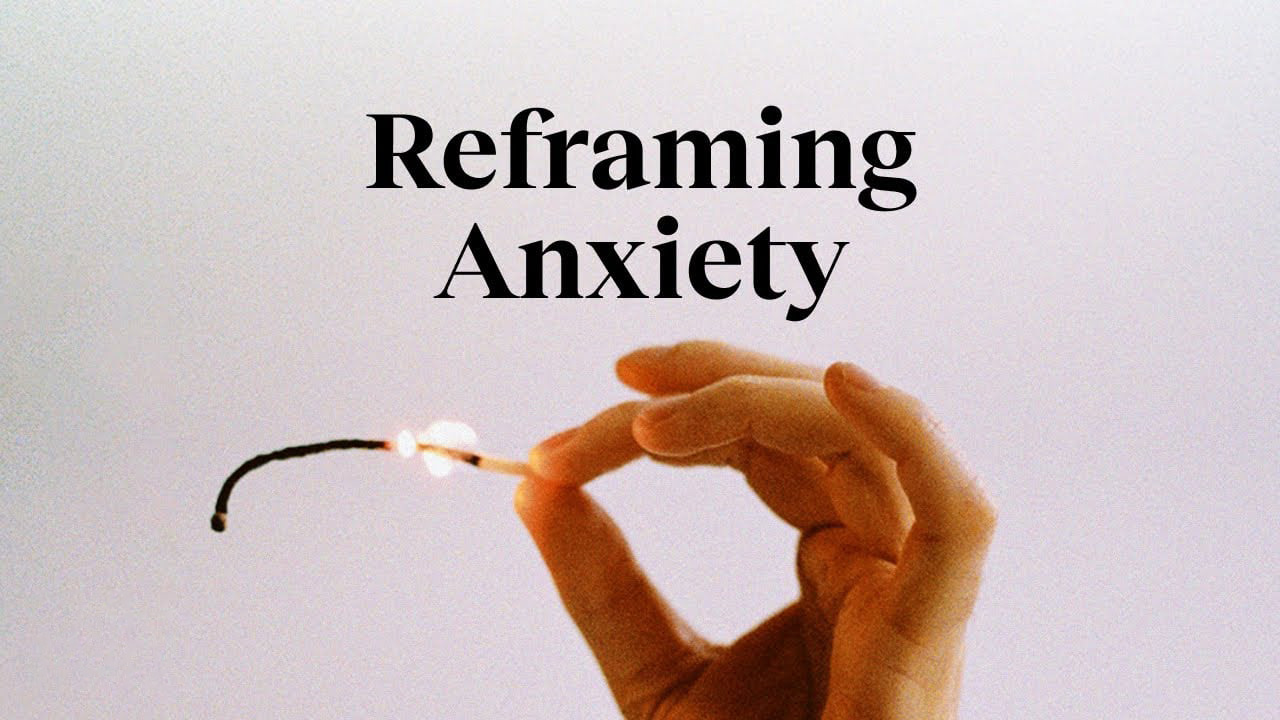
Carrie Berk reveals how she transformed her struggle with anxiety and internet fame by changing her perception and finding her true voice as a writer.
Carrie Berk, author, journalist, and social media influencer with nearly 4 million TikTok followers, shares her journey through anxiety, internet fame, and personal growth.
Amid the pandemic and sudden online fame, Carrie faced intense anxiety, receiving harmful threats from strangers and grappling with the pressures of social media. Sharing her most vulnerable moments, including her first heartbreak at sixteen, Carrie emphasizes the importance of authenticity. Through therapy and self-discovery, she learned that while she couldn’t switch off her anxiety, she could change her response to it.
Carrie’s story is a perfect example of the resilience it takes to be a young person in today’s social climate, and proves how powerful self-confidence and inner strength can be.

This group of people who have experienced homelessness were asked the Perception Box question, "In moments of deep solitude, what major concerns and questions about YOU tend to dominate your thoughts?" Their honest answers were deeply moving and insightful.
This series (a collaboration with Jubilee Media) is designed for communities with shared experiences to spark deeper self-understanding and connection by sharing their answers to specially selected Perception Box questions. This highlights the power of vulnerability and the importance of creating safe spaces for honest conversations.

In this episode, a group of formerly incarcerated individuals was asked the Perception Box question, "What are you most afraid is true about you?" Their candid responses were incredibly moving and thought-provoking.
This series (a collaboration with Jubilee Media) is designed for communities with shared experiences to spark deeper self-understanding and connection by sharing their answers to specially selected Perception Box questions. This highlights the power of vulnerability and the importance of creating safe spaces for honest conversations.

Jewel says denying the truth cost her years of her life. This is how she shifted her perception to see truth more clearly and regain her strength.
“My number one job was to be a happy, whole human — not a human full of holes.” Jewel Kilcher, singer-songwriter, and visual artist, opens up about her childhood, the start of her career, and what makes Jewel, Jewel.
After being discovered during a coffee shop gig in the 1990’s, folk singer Jewel began the life-long endeavor of being a performer. Jewel went on to gain worldwide recognition for her talent and creativity. But who is she at her core? What are her greatest fears, her deepest aspirations?
In this interview, Jewel shares the personal struggles and triumphs that have shaped her, the importance of truth on her life and well-being, and the lessons she's learned along the way. Through this conversation, Jewel offers an up-close look into her journey, revealing the experiences and hard-won insights that have shaped her as both an artist and a person.
Experience Jewel’s latest exhibit at the Crystal Bridges Museum of American Art, The Portal: An Art Experience by Jewel ► https://crystalbridges.org/calendar/the-portal-an-art-experience-by-jewel/
About Jewel:
Jewel Kilcher, known mononymously as Jewel, embodies the quintessential story of resilience and artistic integrity. From her humble beginnings in the rugged landscapes of Alaska to her rise as a multi-platinum recording artist, Jewel's journey is a testament to the transformative power of art. Homeless at 18, she honed her craft performing in coffee shops, blending folk, pop, and country influences with her ethereal voice and introspective songwriting.
Her debut album, "Pieces of You," captured hearts worldwide, achieving remarkable commercial success while delivering profound, soul-stirring messages. Beyond music, Jewel's talents extend to poetry and acting, with her literary works and performances reflecting her deep empathy and authenticity.
Jewel's commitment to social causes, including mental health advocacy and her foundation, the Inspiring Children Foundation, underscores her dedication to making a positive impact. In a world often dominated by transient fame, Jewel stands out as a beacon of enduring creativity and compassionate leadership.

Alyssa and her ex-boyfriend Trey have successfully transitioned from lovers to best friends. But can she recreate that same dynamic with her most recent ex, Adal? Alyssa, Trey, and Adal dive deep into their pasts and their relationships with each other by answering a series of thought-provoking Perception Box questions. Watch their honest reflections, uncover their perspectives on love and friendship, and discover what the future holds for this unique trio.

What happens when men shed their armor and embrace their emotions? Men from diverse backgrounds share their stories of overcoming trauma, redefining masculinity, and finding strength in vulnerability. This is a must-watch for anyone seeking deeper connections and understanding.

Emma and Nick both swiped "yes" in person. Now that they have a chance to get to know each other and themselves more deeply by answering Perception Box questions, are they compatible?

Arielle & Ella met on a Nectar dating show. Was it meant to be, or are they destined to be just friends? They will find out when they get to know their true selves and each other by answering Perception Box questions.

Participants are invited to sit down to ask each other Perception Box questions to see if two strangers could sit down and get vulnerable with one another.

This powerful episode features a group of individuals with disabilities opening up about their deepest fears and struggles. Their experiences highlight the unique challenges they face, from concerns about independent living to mental health struggles and navigating social stigma, and ultimately how they can relate to one another.

Michael Oher gained widespread recognition through Michael Lewis's book "The Blind Side" and its film adaptation, which depicted his difficulties in early life and time playing college football. After attending the University of Mississippi, he played in the NFL for the Baltimore Ravens, Tennessee Titans, and Carolina Panthers, winning the SuperBowl with the Ravens in 2013.

Shaka Senghor spent 19 years in prison, 7 of them in solitary confinement. This is how he found true freedom.
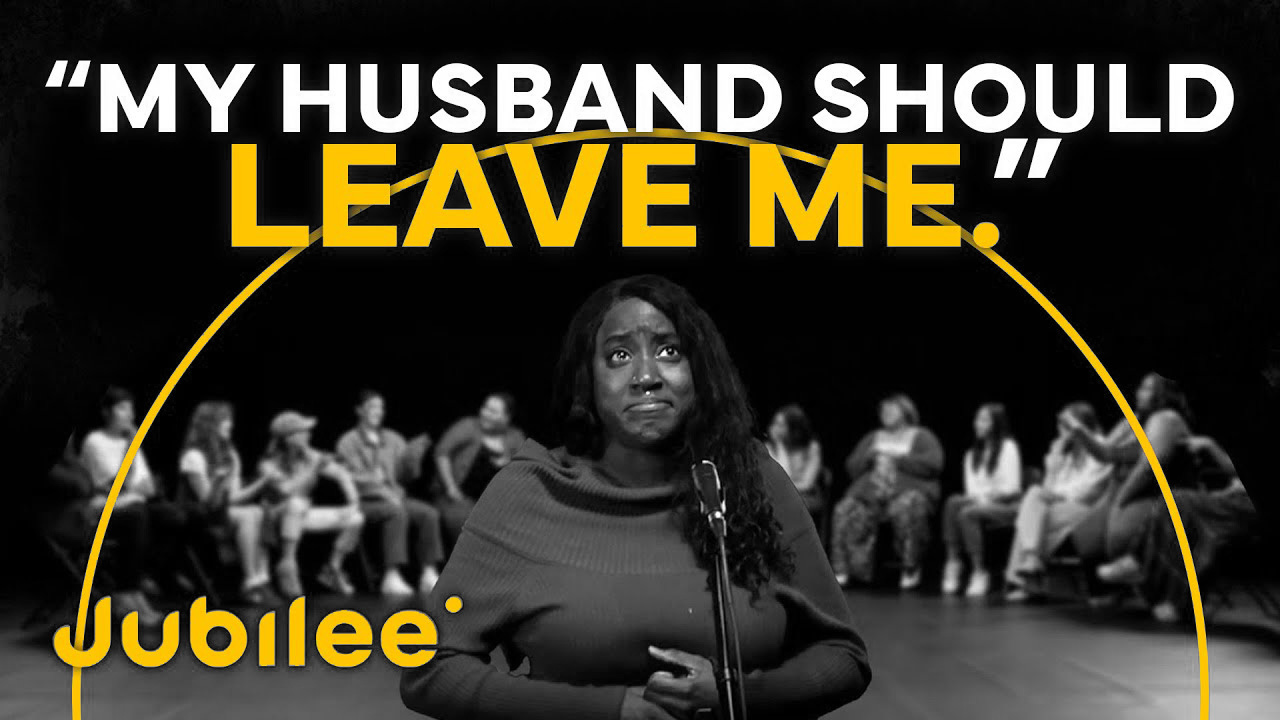
Watch what happens when this group of strangers bravely share their unspoken truths. Will these women find connection in the unexpected? Could sharing your secret be the key to unlocking a powerful sense of belonging?

Curious about tools for fostering deeper self-awareness? Check out the latest episode of Tea for Two by Nectar. Former high school sweethearts, Diane & Justin, use Perception Box questions to explore their individual needs and communication styles. Great insights for anyone in a relationship, whether personal or professional.

Hailey and Travis first met on the Nectar channel, now they are going on their first date and things get deep.
Do you ever feel like you have something to prove?

Scientific experts explain how each person's perception is skewed by various factors such as beliefs, biases, and narratives.
.png)
A collection of interviews dedicated to sharing unique perspectives and challenging our preconceived notions.

Jim Lee, President, Publisher, and Chief Creative Officer of DC Comics tells us how his childhood obsession with Superman changed his life.
.png)
Explore how overcoming the limiting beliefs that hold us back, can expand the possibilities of our perception, and open us up to new ways of seeing and being seen.

The Osbournes was MTV’s biggest show – and it almost cost Jack Osbourne his life. Here’s how his family’s reality TV fame stole his childhood, and how he’s been able to heal since.

Meet Jordan and Rana. These two undergrads have been in an exclusive situationship, but are ready to confront where their relationship is going and what might come next.
Tea for Two explores how daters show up in a relationship by first taking a look at their relationship with themselves. Through a series of Perception Box questions, Tea for Two questions, and challenges, these daters get to know each other and themselves on a whole new level. This allows them to dig deeper, uncover more meaningful connections, and figure out if they are ready to be in this relationship.
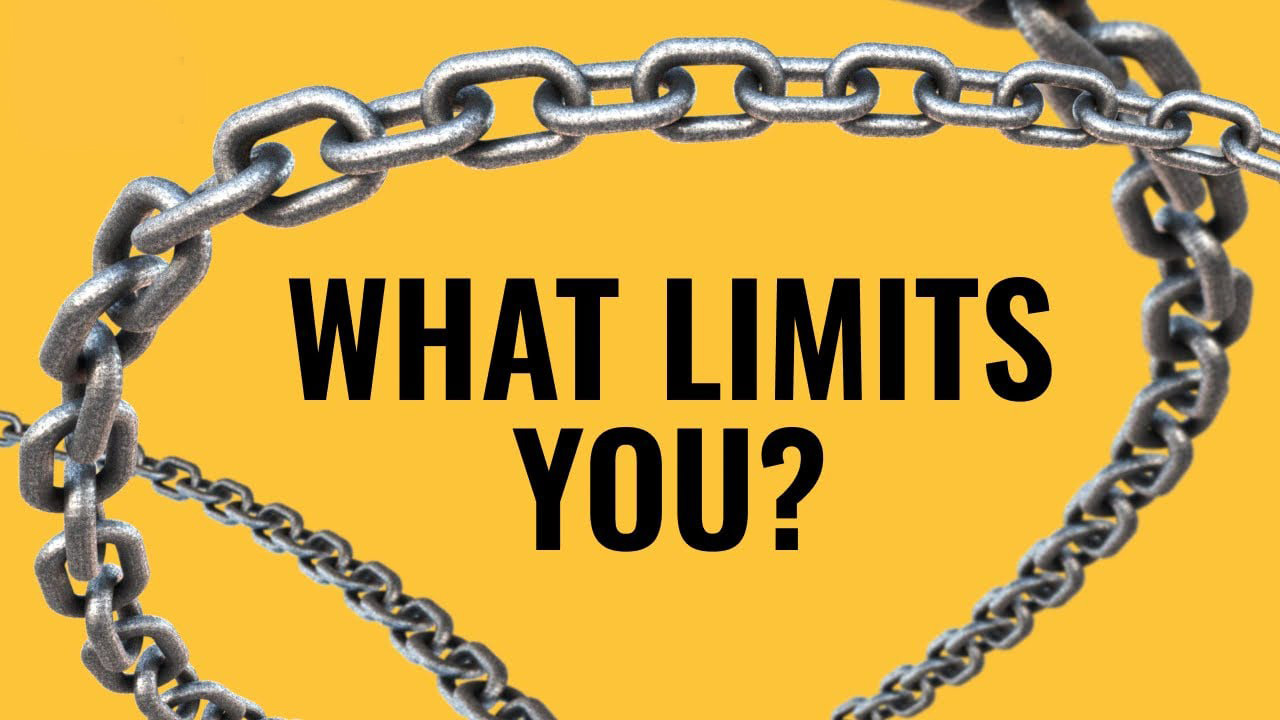
This is how rejection made executive producer and director Julie Plec an undeniable leader.
Creator of the popular series “The Vampire Diaries,” Julie Plec is proof imposter syndrome never goes away, no matter how big you make it. The writer and producer answered our questions about self-doubt, getting “blacklisted,” and how we can alter our perceptions to better appreciate our successes.
About Julie Plec:
Julie Plec is a creator, showrunner, executive producer and director, most notably responsible for the complete Vampire Diaries Universe (The Vampire Diaries, The Originals, and Legacies), which spanned thirteen years and more than 300 episodes of television.
Plec is co-creator and co-showrunner of the upcoming series Vampire Academy, based on the popular book series, which recently wrapped production in Spain and is debuting September 15, 2022, on Peacock. She is also co-creator of the new series Dead Day, along with her Vampire Diaries partner Kevin Williamson, which was recently picked up to series at Peacock as well, and executive producer of Girls on the Bus, which was picked up straight to series at HBO Max.
Plec is creator and executive producer of Legacies, which recently aired its fourth and final season on the CW, along with serving as an executive producer of Roswell, New Mexico, which recently aired its fourth and final season on the CW as well. In addition, Plec served as executive producer of The Endgame, starring Morena Baccarin and Ryan Michelle Bathé, which recently aired on NBC.
She is currently under an overall deal at Universal Television, where she and Emily Cummins, president of her production company, My So-Called Company, are developing projects across all platforms for the studio. Plec and Cummins recently announced a new project at Peacock, Clifton, along with a slate of several other projects in development.
Along with directing multiple episodes of The Vampire Diaries, Legacies, and Roswell, New Mexico, for which she also directed the pilot, Plec directed an episode of the CW’s hit series Riverdale, and most recently directed an episode of her new series Vampire Academy.
Plec developed and executive produced Containment, which aired as a limited series on the CW in 2016.
She got her start as a television writer and co-executive producer for the series Kyle XY, which she produced for the show’s three-year run. Other television credits include Dawson’s Creek, on which she collaborated with creator/executive producer Kevin Williamson, and The Tomorrow People, on which she collaborated with fellow executive producers Greg Berlanti and Phil Klemmer.
In the early part of her career, Plec worked with both Wes Craven and Kevin Williamson during the run of their hit Scream franchise. She also co-produced Berlanti’s directorial debut film, The Broken Hearts Club.
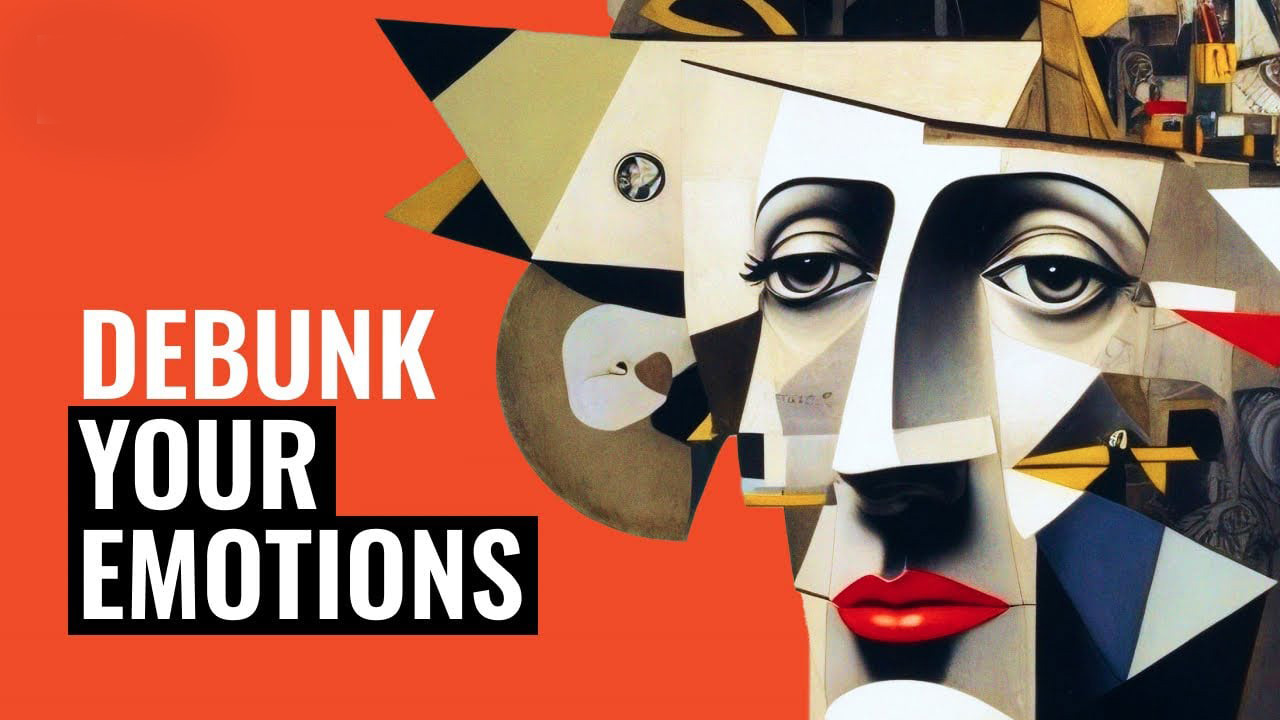
Your emotions do not reflect an irrefutable truth. Psychologist Kristen Lindquist explains how important that is for connecting across cultures.
When it comes to obtaining an objective understanding of the world around us, emotions may not be as reliable as we think, explains Kristen Lindquist, a professor of psychology and neuroscience at the University of North Carolina at Chapel Hill.
Lindquist explores the concept of "affective realism," a term that describes how our feelings shape our reality, both of which are influenced by cultural nuances. She unravels the connections between emotions, culture, and the brain, challenging the notion that our emotional experiences always mirror objective truths.
About Kristen Lindquist:
Kristen Lindquist, PhD. is a Professor of Psychology and Neuroscience at the University of North Carolina, Chapel Hill. Her research seeks to understand the psychological and neural basis of emotions, moods, and feelings. Her on-going work uses tools from social cognition, physiology, neuroscience, and big data methods to examine how emotions emerge from the confluence of the body, brain, and culture.

Robert Waldinger is a psychiatrist, psychoanalyst and Zen priest. He is Professor of Psychiatry at Harvard Medical School and Massachusetts General Hospital, where he directs the Harvard Study of Adult Development. His TEDx talk on this subject has received nearly 44 million views, and is the 9th most watched TED talk of all time. He is the co-author of The Good Life with Dr. Marc Schulz.
Scott Barry Kaufman talks to Robert Waldinger about the secret to a happy life. Robert shares the recent findings of The Grant Study, which is the longest scientific study of happiness ever conducted. It’s been ongoing for more than 80 years now, and has had high profile participants like US President John F. Kennedy. Robert and Scott get into the details of how they continue to conduct research and how to make sense of both the new and old data. Sure enough, what the study has found consistent is the power of connection. They also touch on the topics of psychodynamic therapy, defense mechanisms, attachment, and psychological research.
Website: www.robertwaldinger.com
X: @robertwaldinger

The divisive gold/blue dress that almost broke the internet in 2015 is a relatable example of how a Perception Box works. How each of us having our Perception Box, own subjective reality, affects the way we experience the world.
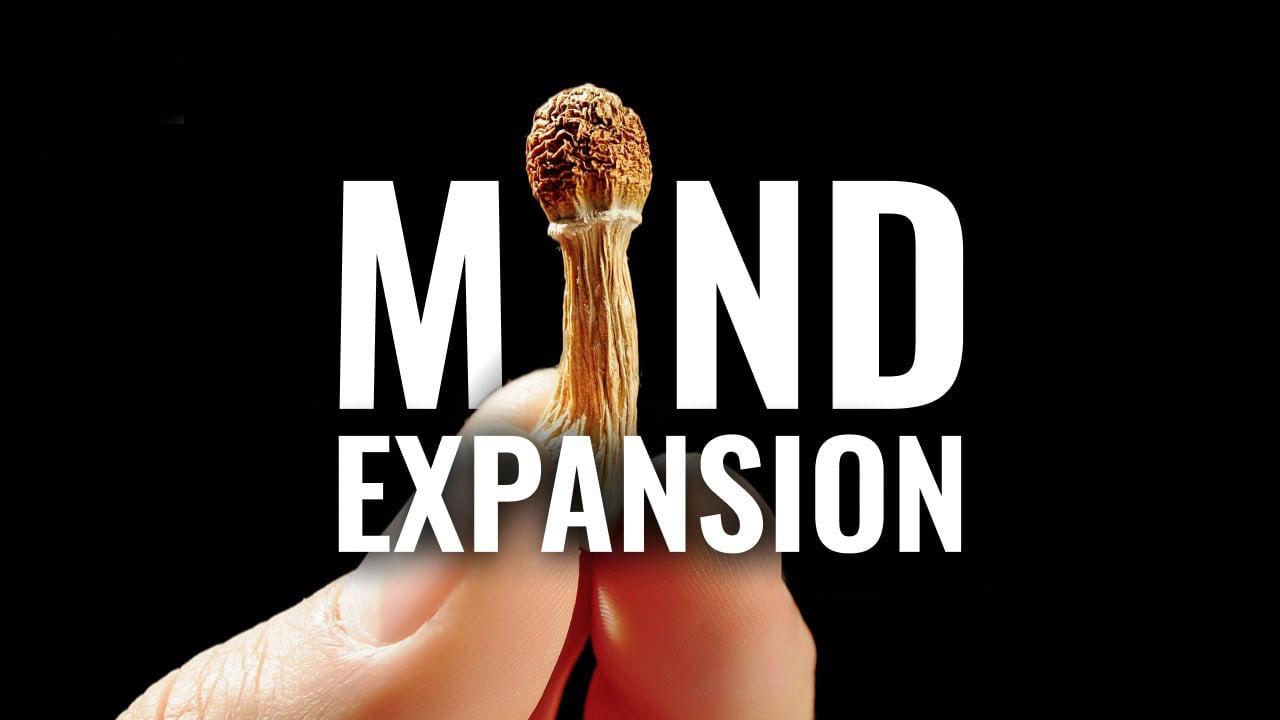
Expert James Fadiman explains how psychedelics have the power to expand consciousness, enhance creativity, and deepen our connections to the world.
James Fadiman, a distinguished figure with over six decades in psychedelic research, examines the profound impact psychedelics have on consciousness, creativity, and connectivity.
Fadiman shares insights into how these substances shift perception, offering perspectives that challenge and expand our understanding of reality. He also delves into the scientific underpinnings of psychedelics, their therapeutic potential, and the societal benefits of fostering deeper empathy and open-mindedness. Highlighting the importance of integration post-experience, Fadiman sheds light on the transformative power of psychedelics to not only alter individual consciousness but also to enhance community bonds and personal relationships.
Through a focus on responsible use and the expansion of human awareness, Fadiman's expertise offers a compelling view into the capacity of psychedelics to redefine our interaction with the world and ourselves.
About James Fadiman:
Dr. James Fadiman is a leading scientific expert on the use of psychedelics for personal exploration, healing, and transformation. He has been researching, writing and lecturing on the topic for more than fifty years. His research focuses on exploring the potential of psychedelics to help individuals achieve a more meaningful, balanced and enlightened life. He has written numerous books on the topic, such as The Psychedelic Explorer’s Guide and Your Symphony Of Selves, and is widely considered to be one of the most influential figures in the field.

There are three kinds of memory that all work together to shape your reality. Neuroscientist André Fenton explains.
Neuroscientist André Fenton discusses the intricate relationship between memory, perception, and reality, shedding light on the complexity of human cognition.
Fenton believes memories are not fixed but are continually modified by our experiences and mindsets.
This, in his mind, underscores the importance of humility and empathy in acknowledging the fallibility of our memories and the need to consider different perspectives in our quest for truth.
About André Fenton:
André Fenton, professor of neural science at New York University, investigates the molecular, neural, behavioral, and computational aspects of memory. He studies how brains store experiences as memories, how they learn to learn, and how knowing activates relevant information without activating what is irrelevant. His investigations and understanding integrates across levels of biological organization, his research uses genetic, molecular, electrophysiological, imaging, behavioral, engineering, and theoretical methods. This computational psychiatry research is helping to elucidate and understand mental dysfunction in diverse conditions like schizophrenia, autism, and depression. André founded Bio-Signal Group Corp., which commercialized an FDA-approved portable, wireless, and easy-to-use platform for recording EEGs in novel medical applications. André implemented a CPAP-Oxygen helmet treatment for COVID-19 in Nigeria and other LMICs and founded Med2.0 to use information technology for the patient-centric coordination of behavioral health services that is desperately needed to equitably deliver care for mental health. André hosts “The Data Set” a new web series on how data and analytics are being used to solve some of humanity’s biggest problems.

Nothing is real and everything is an illusion. Neuroscientist Heather Berlin explains why that’s not exactly a bad thing.
Neuroscientist Heather Berlin likens each person's perception to a unique box shaped by their own experiences. Perception, Berlin explains, arises from a blend of internal expectations and external sensory input, creating a subjective experience.
Berlin believes our mental state can also profoundly affect our perception; a pessimistic mindset might skew it negatively, for example. The brain filters information, relying on preexisting schemas that can lead to cognitive biases. She notes that these biases can be altered through changing inputs over time, which can expand our empathy.
Understanding perception's illusory nature empowers us to shape our experiences and find joy despite life's challenges.
About Heather Berlin:
Dr. Heather Berlin is a neuroscientist, clinical psychologist, and associate clinical professor of psychiatry and neuroscience at the Icahn School of Medicine at Mount Sinai in New York. She explores the neural basis of impulsive and compulsive psychiatric and neurological disorders with the aim of developing novel treatments. She is also interested in the brain basis of consciousness, dynamic unconscious processes, and creativity. Clinically, she specializes in lifespan (child, adolescent, and adult) treatment of anxiety, mood, and impulsive and compulsive disorders (e.g., OCD), blending her neural perspective with cognitive-behavioral therapy, mindfulness, and humanistic approaches.
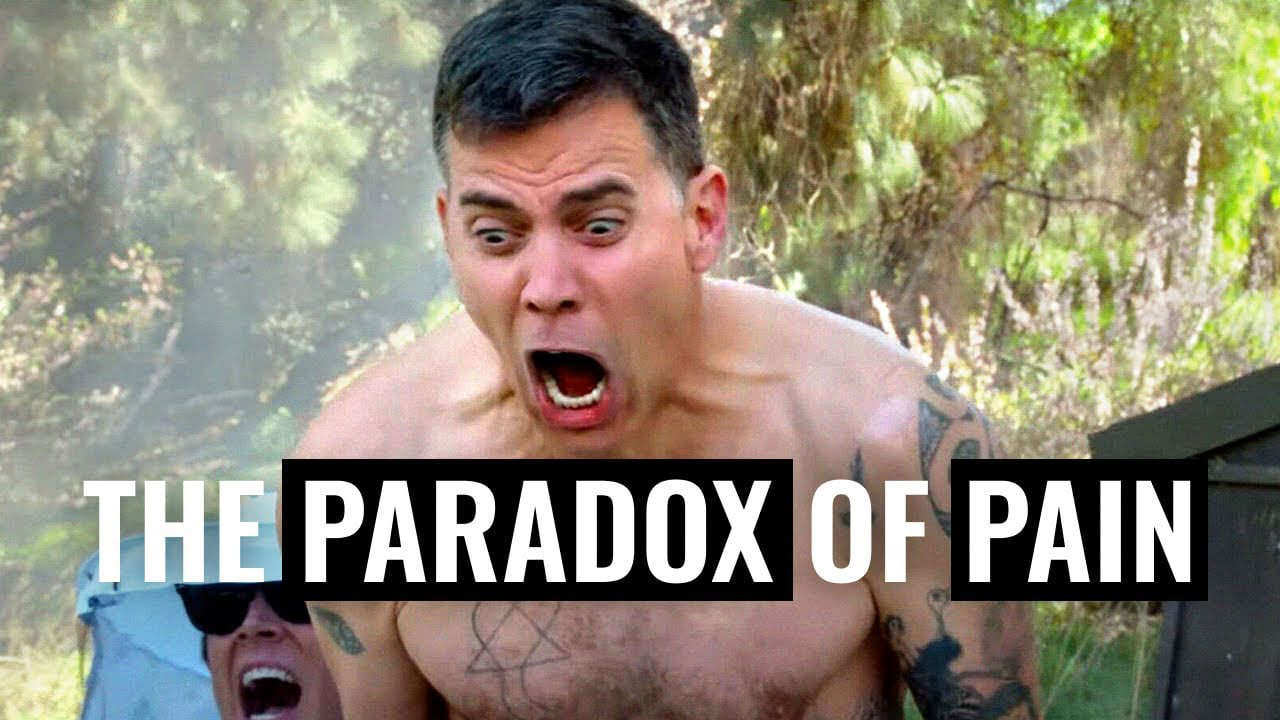
You know Steve-O. Now meet Steve Glover, as the professional stuntman talks to us about pain, insecurity, and never finding contentment.
In this deeply personal and revealing interview, Steve Glover, better known as Steve-O, the daredevil entertainer known for his jaw-dropping stunts and unflinching willingness to face pain, shares the untold story of his journey from a childhood craving for attention to becoming an icon of wild antics and extreme performances.
Opening up about his struggles with alcoholism, the relentless pursuit of fame, and his battles with feeling 'not good enough', Glover offers an introspective look into the complexities behind the laughter and the screams.
With raw honesty, he discusses the pivotal moments that shaped him, the drive to document his existence through stunts, and the liberating power of sharing the secrets he once vowed to take to his grave.
This interview is not just a glimpse into the life of a professional idiot; it's a candid exploration of human vulnerability, the cost of fame, and the ongoing quest for self-acceptance.
About Steve-O:
Steve-O (a.k.a. Stephen Glover) was willing to do whatever it took to become famous, even if it meant stapling his ball sack to his leg. After failing miserably at the University of Miami and couch-surfing with friends, he decided that in order to further his goal of becoming a stuntman he would enroll in Ringling Brothers and Barnum & Bailey Clown College. But it was his relentless attention whoring that ultimately led to working with Johnny Knoxville on a new stunt-based reality show called Jackass.
In 2000, MTV aired the first season and the rest, as they say, is history. Since then, he's had continued success, as a New York Times best-selling author with the release of his memoir, 'Professional Idiot', as well as establishing himself in the world of stand-up comedy. With fourteen years of sobriety under his belt, Steve-O shows no signs of slowing down.
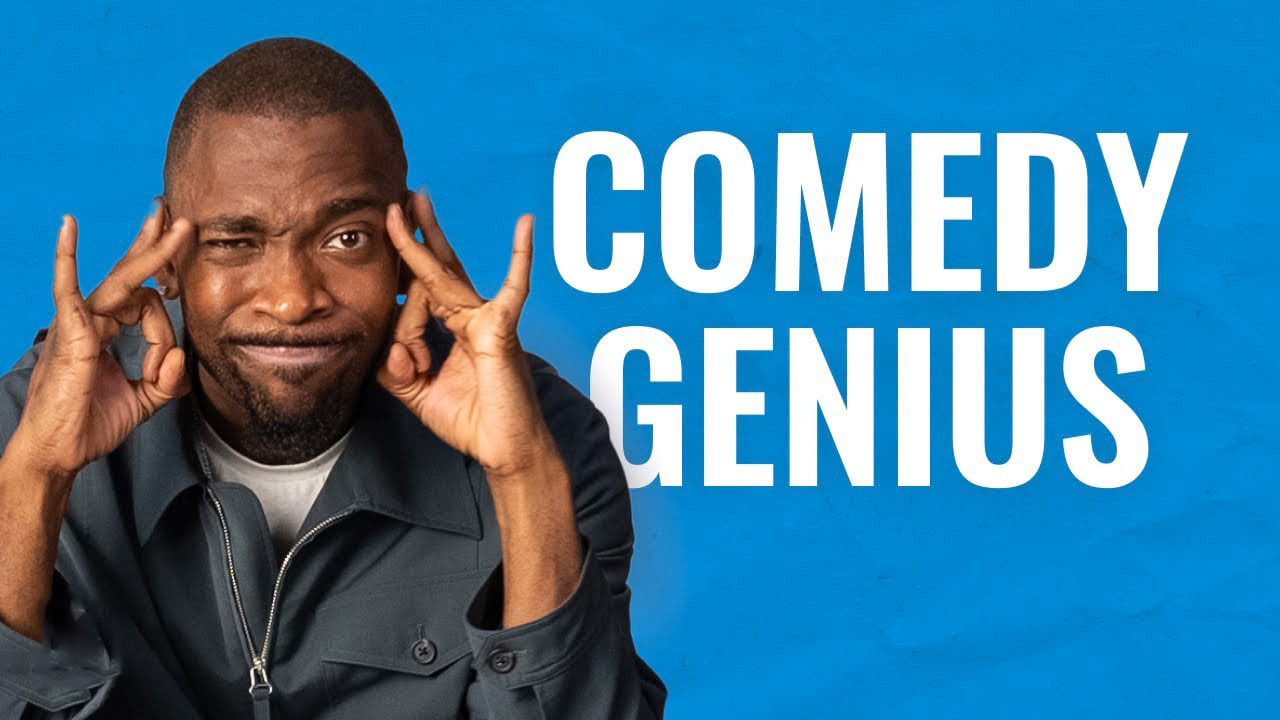
Former SNL star @JayPharoah answers our most challenging questions about life, self-esteem, and changing his mind.
Jay Pharoah is known best for his impressions, but he’s got a lot more going on. The actor, comedian, and rapper sat down with us to talk about embracing triumphs, overcoming setbacks, forgiveness, and the way all of it shapes who you are.
About Jay Pharoah:
Jay Pharoah is an actor and stand-up comedian. With six seasons as a cast member of NBC's Saturday Night Live, Pharoah is best known for his wide array of uncanny celebrity impressions, including President Barack Obama, Will Smith, Denzel Washington, Stephen A. Smith, Kanye West and Chris Tucker, as well as his recurring character, school principal Daniel Frye.
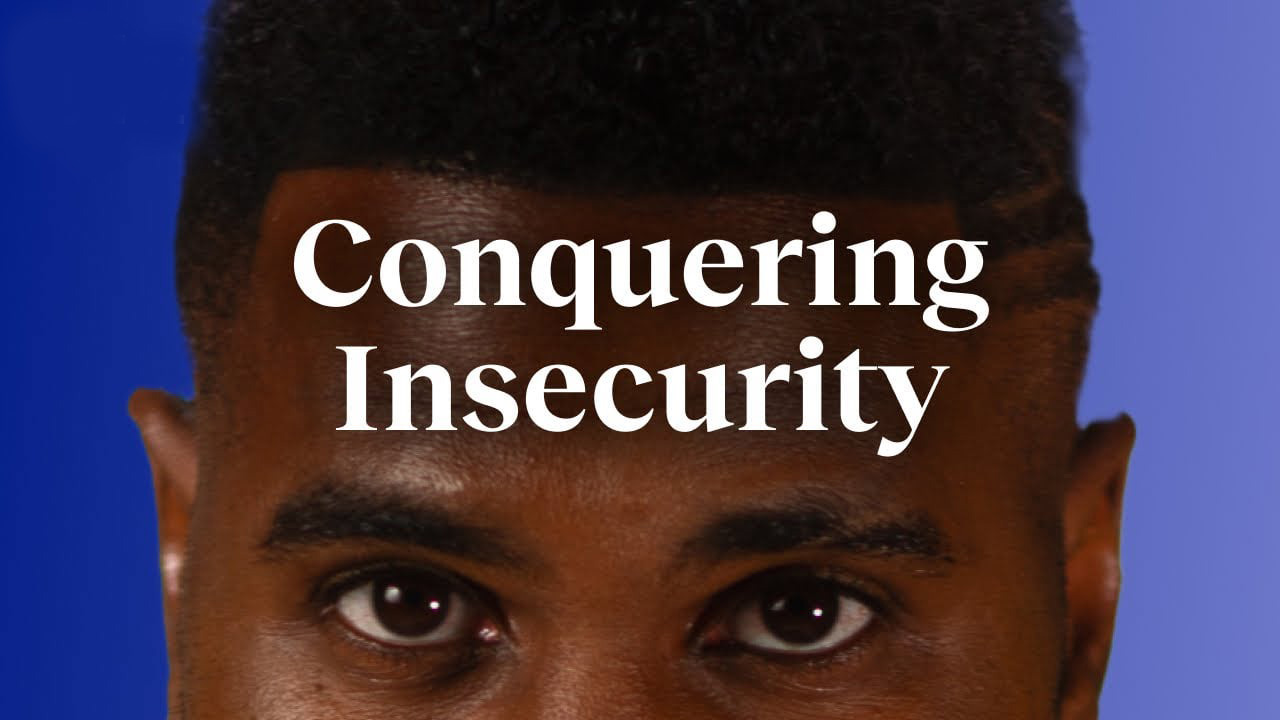
Over 250 million records sold and more than 70 platinum hits later, @JasonDerulo sits down with us to talk about goals, insecurities, and why he still doesn’t feel like he’s “made it.”
Jason Derulo's career flashed before his eyes when he broke his neck in 2012. Despite fearing the worst, he used positive self-talk and daily routines to recover and create hit songs like “Marry Me” and “Talk Dirty.” Overcoming childhood insecurities, he emphasizes the power of self-improvement. Now a global superstar with 250 million singles sold, Derulo prioritizes family time since becoming a father in 2021.

Cindy Gallop answers our questions about sex, identity, and why we need to stop giving a damn.
Cindy Gallop, the founder and CEO of MakeLoveNotPorn, answered our questions about self-worth, the weight of other people’s expectations on women, and hope.
She shares her mission to normalize and destigmatize conversations about sex, including the negative consequences of using pornography as a substitute for sexual education.
Cindy hopes for a world where we’re all unburdened by societal judgments and true equality is achieved.
About Cindy Gallop:
Cindy Gallop is a graduate of Somerville College, Oxford, whose background is over 30 years in brand-building, marketing and advertising — she started up the US office of ad agency Bartle Bogle Hegarty in New York in 1998 and in 2003 was named Advertising Woman of the Year.
She is the founder and CEO of IfWeRanTheWorld, co-action software launched in beta at TED 2010 and subsequently written up and taught as a Harvard Business School case study, which enables brands to implement the business model of the future — Shared Values + Shared Action = Shared Profit (financial and social).
She is also the founder of MakeLoveNotPorn – ‘Pro-sex. Pro-porn. Pro-knowing the difference’ — a social sextech platform designed to promote good sexual behavior and good sexual values, which she launched at TED 2009, and for which she has just raised $2 million to build out MLNP.tv as ‘the Social Sex Revolution’.Cindy recently partnered with AARP on their Disrupt Aging initiative to challenge and change ageism.
Cindy has also published ‘Make Love Not Porn: Technology’s Hardcore Impact on Human Behavior’ as one of TED’s line of TEDBooks.
You can follow her on Twitter @cindygallop.

He co-created one of TV’s funniest shows. He still felt like a failure in his 30s. This is comedian Neal Brennan’s story about conquering toxic self-talk.
We all tell lies to ourselves about ourselves, usually in the form of vicious inner criticism. Neal Brennan, seasoned comedian and one of the brilliant minds behind “Chapelle’s Show,” confronted his inner critic on video for our entertainment.
Despite being instrumental in one of the most successful comedy shows of all time, there was a time when Brennan didn’t think he had much to show for himself, especially not as a solo entertainer. The eventual demise of “Chappelle’s Show” led him down a dark path of self-doubt and, then, rediscovery.
Brennan worked 12-step programs, ventured into the world of psychedelics, and even tried magnetic brain manipulation to break out of his despair. Now, he has a new perspective on the value of going it alone. Turns out, it isn’t quite so bad.
About Neal Brennan:
Three-time Emmy nominated writer, director, producer, and standup comedian Neal Brennan has become a force in the comedy world. An across-the-board talent, Neal has found success in almost every creative vein in the comedy landscape. Hailed by The Hollywood Reporter as “Hollywood’s Comic Whisperer” and lauded by The New York Times as having a “hip-hop and Frontline aesthetic,” he has collaborated with top talent both in front of and behind the camera for three decades.
Neal’s most recent one-man show Neal Brennan: Unacceptable enjoyed a sold-out run in NYC in 2021 with The New York Times offering “Brennan starts off with a regular joke format before turning toward introspection as he exposes his doubts, neuroses and vulnerabilities. And he remains very funny as he does so.” Neal’s critically acclaimed first off-Broadway one-man show 3 Mics also enjoyed a sold-out NYC run in 2016 with musician John Legend serving as Executive Producer with Paste Magazine gushing “It will floor you in the best way possible.” In a break from traditional standup comedy, 3 Mics saw Brennan alternating between three separate microphones; one for traditional stand-up, one for one-liners, and one for short confessional monologues covering everything from managing his depression to his difficult relationship with his father. Both one-man shows were taped as stand-up specials and premiered on Netflix to much fanfare and critical acclaim.
Neal co-created Comedy Central’s legendary Chappelle’s Show, for which he received three Emmy nominations. Together, Brennan and Dave Chappelle wrote and produced virtually every sketch on the show themselves. A longtime writing partner of Chappelle, Neal was a standout speaker in his televised Mark Twain Prize ceremony, wrote on his Emmy-winning 2016 Saturday Night Live hosting turn, and co-wrote the cult hit feature Half Baked. Neal also served as a Creative Consultant and on-air correspondent on Comedy Central’s The Daily Show with Trevor Noah, for which he was personally picked by Noah to be his final guest. He was Executive Producer on Chris Rock’s special Chris Rock: Tamborine, Consulting Producer on Ellen Degeneres’ special Relatable, and collaborator with Seth Meyers on his White House Correspondents Dinner speech. In addition to standup, writing, directing, and producing, Brennan has also directed popular commercials for Sprite, Netflix, Best Buy and Nike.
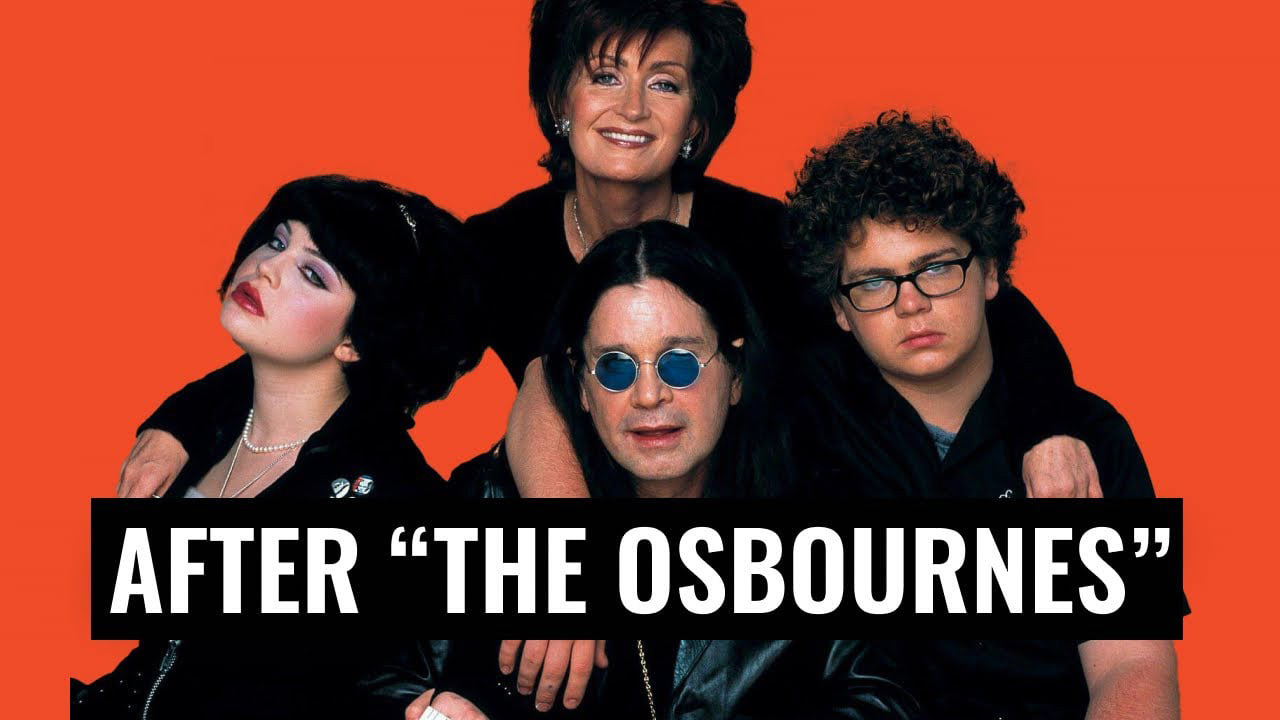
The Osbournes was MTV’s biggest show – and it almost cost Jack Osbourne his life. Here’s how his family’s reality TV fame stole his childhood, and how he’s been able to heal since.
About Jack Osbourne:
Jack Osbourne is well known for participating in reality TV shows with his celebrity family, like The Osbournes and Ozzy and Jack’s World Tour. Jack has also overcome and dealt with great difficulties in his life, such as dyslexia, drug addiction, an MS diagnosis, depression, various medical scares in his family, and more. His ability to bounce back from these challenges has served as inspiration for others undergoing difficulties in life. Jack uses his platform to advocate for people living with MS.
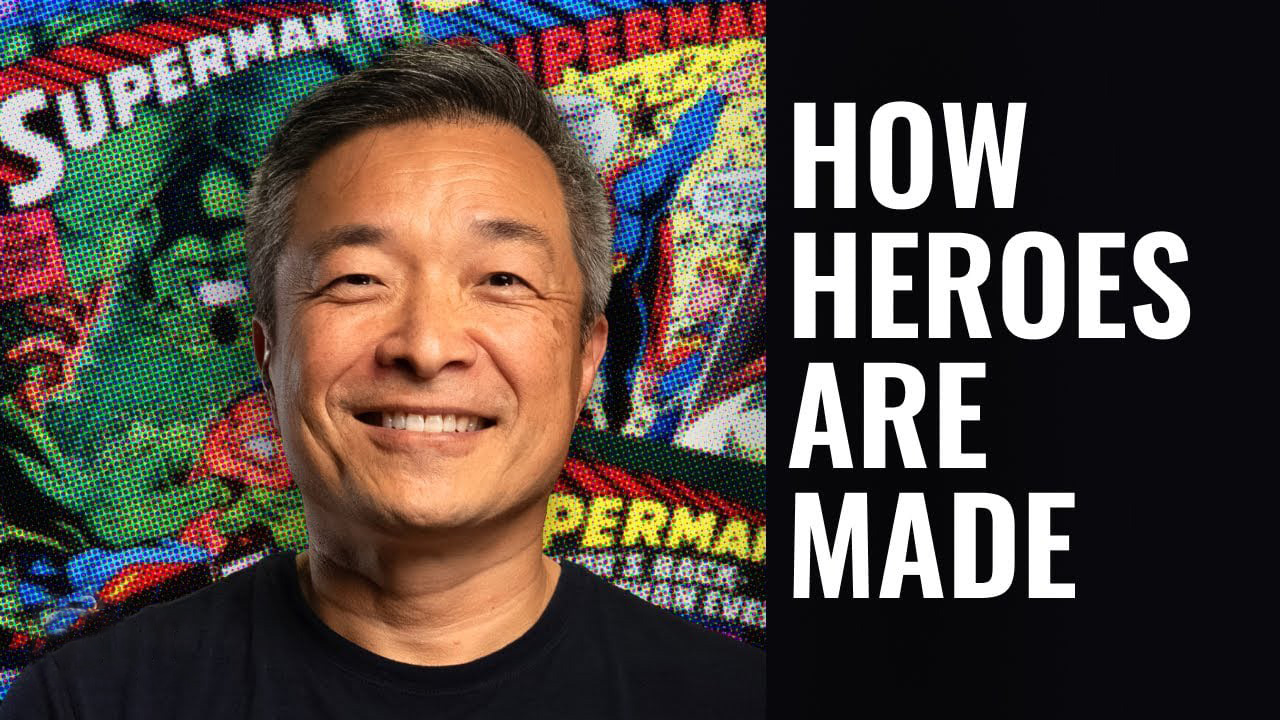
Jim Lee, President, Publisher, and Chief Creative Officer of tells us how his childhood obsession with Superman changed his life.
Jim Lee is synonymous with DC Comics now, but when he was first charting his path, his family pushed him towards medical school. In this interview, Jim shares how he reasoned with his parents and bought time to pursue his dream of being a comic book artist over the span of a gap year.
About Jim Lee:
Jim Lee, a world-renowned comic book artist, writer, editor and publisher, is currently Chief Creative Officer of DC (DC) and Publisher for the company.
Known for his incredibly detailed and dynamic artistic style, Lee is one of the most revered and respected artists in American comics. A veritable legend in the industry, he has received numerous accolades and recognition for his work, including the Harvey Special Award for New Talent in 1990, the Inkpot Award in 1992, and the Wizard Fan Award in 1996, 2002 and 2003.
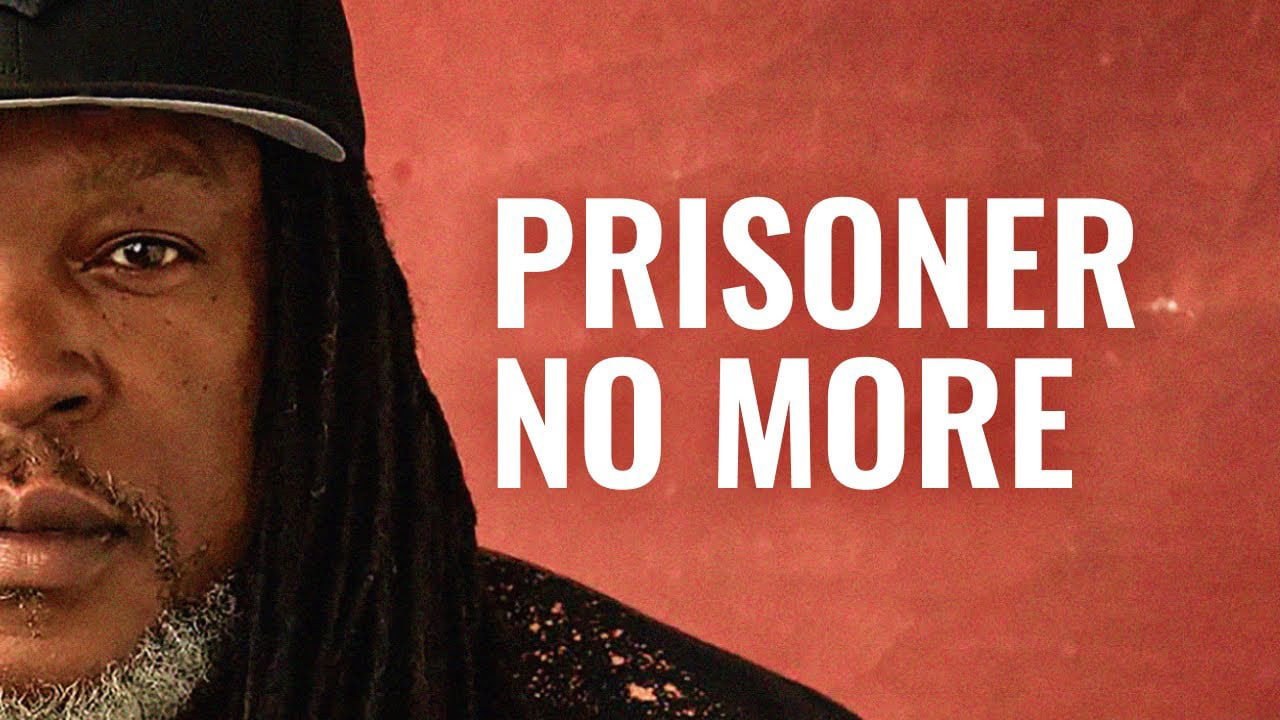
Shaka Senghor spent 19 years in prison, 7 of them in solitary confinement. This is how he found true freedom.
The way Shaka Senghor tells his story, he found himself incarcerated long before he officially went to prison for second-degree murder, and he experienced freedom long before completing his sentence at the age of 38.
Senghor ran away from home and got drawn into the crack cocaine trade at the age of 14. After a series of traumatic events, he felt trapped in a narrative that dictated his life could only lead to limited outcomes: an early grave or a prison cell.
In our intimate interview, Senghor shares the three "keys" that transformed his perspective on life and have enabled him to live as a genuinely free man today.

“The Blind Side” only told part of Michael Oher’s story. Now, he tells us the rest.
You might know Michael Oher as the subject of “The Blind Side,” the 2009 movie starring Sandra Bullock and Tim McGraw. The film was based on the true story of Oher, a young Black football player, who gained a second chance at life after being adopted by white parents.
But Oher’s version of the story is a lot different, and it starts long before the Tuohys entered the picture.
In this interview conducted with our partner Unlikely Collaborators, Oher paints a picture of the crack epidemic in the ‘80s and ‘90s, a broken and tumultuous family, and a young boy determined to climb out of it.
About Michael Oher:
Michael Oher gained widespread recognition through Michael Lewis's book "The Blind Side" and its film adaptation, which depicted his difficulties in early life and time playing college football. After attending the University of Mississippi, he played in the NFL for the Baltimore Ravens, Tennessee Titans, and Carolina Panthers, winning the SuperBowl with the Ravens in 2013.
Michael has also written two books: I Beat The Odds and When You’re Back’s Against The Wall, which detail his struggles and successes in life, imparting wisdom on how to overcome adversity. Michael has also contributed to the book Blindsided, where he outlines his experience of early-stage CTE, how he walked away from the NFL, and his urgent recommendations to reform football and make it a safer sport.

Built from the material of your beliefs (aka, the bullshit you tell yourself and collect from those around you over the course of your life), the Perception Box™ has the power to distort your reality and leave you feeling isolated, disconnected, and fearful. By asking sometimes contradictory but always consequential questions, we’ll show you how to understand and work with your Perception Box—how to overcome the limiting beliefs that hold you back, expand the possibilities of perception, and invite in new ways of seeing and being seen.

A guided body awareness mediation to help you get out of your head and into your body. Learn to tune into your body for a heads up on what you’re feeling before you explode. It’s literally your friend on the inside.

Simple, easy, and faster than chasing down that driver that cut you off.

Orin Davis earned the first doctorate in positive psychology, and is a self-actualization engineer who enables people to do and be their best. As the Principal Investigator of the Quality of Life Laboratory, he conducts research on flow, creativity, hypnosis, and mentoring. Dr. Davis consults for companies from startups to multinationals on hiring strategies, culture, innovation, and employee well-being. He is the author of Team Flow: The psychology of optimal collaboration.
Scott Barry Kaufman talks to Orin Davis about the new science of flow. A lot of people are familiar with the concept of flow, but according to Dr. Davis, the experience of it is not very common. They discuss Mihaly Csikszentmihalyi’s work and how Dr. Davis is expanding the research of flow by studying it at a group level. Dr. Davis talks about how we can increase the chances of experiencing flow for both individuals and teams. Orin and Scott also touch on the topics of microflow, hypnosis, absorption, positive psychology, and self-actualization.
Website: https://qllab.org/
X: @DrOrinDavis

Robert Sapolsky is professor of biology and neurology at Stanford University and a research associate with the Institute of Primate Research at the National Museum of Kenya. His research has been featured in the National Geographic documentary "Stress: Portrait of a Killer". At age 30, Robert received the MacArthur Foundation's "genius" grant. He is author of Why Zebras Don't Get Ulcers, A Primate's Memoir, The Trouble with Testosterone and Monkeyluv. His latest book is called Determined: A Science of Life Without Free Will.
Scott Barry Kaufman talks to Robert Sapolsky about life without free will. Humans like the idea of having control over their lives, but Robert asserts that free will is just an illusion. Life beyond free will may sound unpleasant, but Robert explains the profound consequences of this belief in reforming the justice system, meritocracy, and education. Robert and Scott also touch on the topics of philosophy, quantum physics, mindfulness, grit, and responsibility.
LinkedIn: www.linkedin.com/in/robertsapolsky/

For over 40 years, Bob Mankoff has been the driving force of comedy and satire at some of the most honored publications in America, including The New Yorker and Esquire. He is the founder of Cartoon Collections, parent company to CartoonStock.com, the world’s most successful cartoon licensing platform. For twenty years as Cartoon Editor for The New Yorker, Bob pored over thousands of submissions each week, analyzing, critiquing, and selecting each cartoon. In 2005, he helped start the “New Yorker Cartoon Caption Contest.” Bob is the author of numerous books, including his New York Times bestselling memoir, How About Never – Is Never Good For You?: My Life In Cartoons.
Scott Barry Kaufman talks to Bob Mankoff about the psychology of humor. Looking back at his illustrious career as a cartoonist, Bob talks about his early beginnings and the people he's mentored in the field. He explains the anatomy of a joke and reveals his all-time favorite cartoons. While humans are creative creatures, Bob believes that using AI and technology can further augment our intelligence and humor by opening up worlds of possibilities.
Website: www.bobmankoff.com
X: @BobMankoff

Joseph Goldstein is a co-founder and the guiding teacher of the Insight Meditation Society (IMS) along with Jack Kornfield and Sharon Salzberg. He is one of the first American vipassana teachers and has been teaching Buddhist meditation worldwide since 1974. A contemporary author of numerous popular books on Buddhism, his publications include Mindfulness: A Practical Guide to Awakening, One Dharma, Insight Meditation and others.
Scott Barry Kaufman talks to Joseph Goldstein about Buddhism and the impermanence of life. Being too attached to the self can bring suffering. However, this doesn’t mean that we need to forego our identities or self-care. Joseph explains that enlightenment can be achieved when the mind is free from clinging. He talks about the different states that can help us realize the insight of impermanence and selflessness. Scott and Joseph also touch on the topics of mindfulness, compassion, creativity, and wisdom.
Website: www.dharma.org
X: @onedharma

Dan Siegel is a clinical professor of psychiatry at the UCLA School of Medicine and the founding co-director of the Mindful Awareness Research Center at UCLA. Dr. Siegel is also the Executive Director of the Mindsight Institute. He’s authored numerous articles, chapters, and books including the New York Times bestsellers Mind: A Journey to the Heart of Being Human and Aware: The Science and Practice of Presence. His latest book is called IntraConnected: MWe (Me + We) as the Integration of Self, Identity, and Belonging.
Scott Barry Kaufman talks to Dr. Dan Siegel about expanding the notion of the self. Modern culture has taught us that the self is all about individual identity and personal experiences. But Dr. Siegel posits that who we are is not limited to the brain or body. He argues that the self is not isolated, it’s composed of our relationships to other living beings and to the natural world. This expanded view of the self has important implications for the trajectory of humanity. Dan and Scott also touch on the topics of consciousness, neuroscience, quantum physics, and the flow state.
Website: drdansiegel.com
Instagram: @DrDanSiegel

Michael Slepian is the Sanford C. Bernstein & Co. Associate Professor of Leadership and Ethics at Columbia University. A recipient of the Rising Star Award from the Association for Psychological Science, he is the leading expert on the psychology of secrets. He’s authored more than fifty articles on secrecy, truth, and deception. Michael’s research has been covered by The New York Times, The Atlantic, NPR, BBC, The Wall Street Journal and more. He is the author of The Secret Life of Secrets.
Scott Barry Kaufman talks to Michael Slepian about the psychology of secrets. Everyone has secrets that they keep from others—how does this affect our relationships and well-being? According to Michael, maintaining privacy is not the most burdensome aspect. Carrying a secret all by ourselves is what weighs us down. Michael and Scott explore the different categories of secrets and we talk about when to reveal the deepest parts of ourselves and who to reveal them to. Scott and Michael also touch on the topics of personality, morality, trauma, developmental psychology and communication.
Website: michaelslepian.com
X: @michaelslepian

Monica Parker is the founder of global human analytics and change consultancy HATCH, whose clients include blue-chip companies such as LinkedIn, Google, Prudential, and LEGO. Her career has been nothing short of colorful, having been an opera singer, a museum exhibition designer, a policy director, a Chamber of Commerce CEO, and a homicide investigator. She is also a world-renowned speaker, writer, and the author of The Power of Wonder.
Scott Barry Kaufman talks to Monica Parker about the power of wonder. In today’s fast-paced world, most people fail to notice the richness of life. To become more wonder-prone, Monica encourages us all to slow down and pursue meaningful exploration. When we pay more careful attention to the world, we become more empathetic, resilient, and exuberant. Monica shares with her cycle of wonder framework and how we can be more open and present in our daily lives. Monica and Scott also touch on the topics of personality, post-traumatic growth, mindfulness, and education.
Website: www.monica-parker.com
Instagram: @monicacparker






